TOGETHER to succeed

votre référence en formation des adultes
2023
SPRING
SPECIAL EDITION



Funding provided in part by the Government of Canada through the Canada Job Grant Programs delivered by the Government of Ontario Funding provided in part by the Government of Ontario through the Programme d’appui à la francophonie ontarienne (PAFO) du ministère des Affaires francophones. Opinions expressed in this publication do not necessarily reflect the views of the Ministry. This work is licensed under the Creative Commons Attribution-NonCommercial 4.0 International License. To view a copy of this license, visit http://creativecommons.org/licenses/by-nc/4.0/ or send a letter to Creative Commons, PO Box 1866, Mountain View, CA 94042, USA. INFO@COALITION.CA 1-877-464-0504 | 613-842-5369 WWW.COALITION.CA 435 DONALD STREET, OFFICE 301 , OTTAWA, ON K 1 K 4 X 5
4 A word from the editor in chief
5 The History of COFA through its Directions
THANK
22 Our Best Wishes
to COFA
24 The Step by Step Evolution of the F@D
The COFA Viewed from the Field
26 The COFA in the World of the Francophonie

30 Lifelong Learning


Acknowledgements
EDITOR IN CHIEF: Gabrielle Lopez
COORDINATOR AND WRITER: Laurence Buenerd
GRAPHIC DESIGNER: Chantal Carrière
PROOFREADING AND TRANSLATION: Lauraine Teodoro

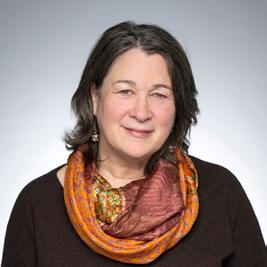
In this publication, the masculine is used solely for stylistic purposes and includes all genders. The views expressed in this publication are those of the authors and do not necessarily represent the views of the Coalition ontarienne de formation des adultes (COFA).
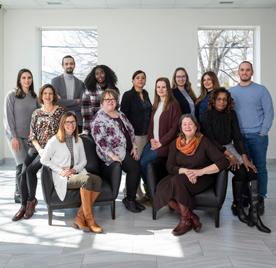
Table of contents
PRINTING: Bradda Printing Services inc. 46
YOU!
44
The COFA team reveals itself... 33 COFA members
17
A word from the editor in chief
 Gabrielle Lopez
Gabrielle Lopez
25 years of existence! This edition is a reflection of the journey, the challenges, the struggles and the successes that have marked these twenty-five years of operation.
Our slogan for this 25th anniversary: Together to succeed!
Because together, community centres, school boards and colleges have consolidated and strengthened the literacy and basic skills (LBS) sector in Ontario. Together, we have articulated and optimized the continuum of education and training in Ontario’s Francophonie so that the principle of lifelong learning is active in formal, non-formal and informal learning.
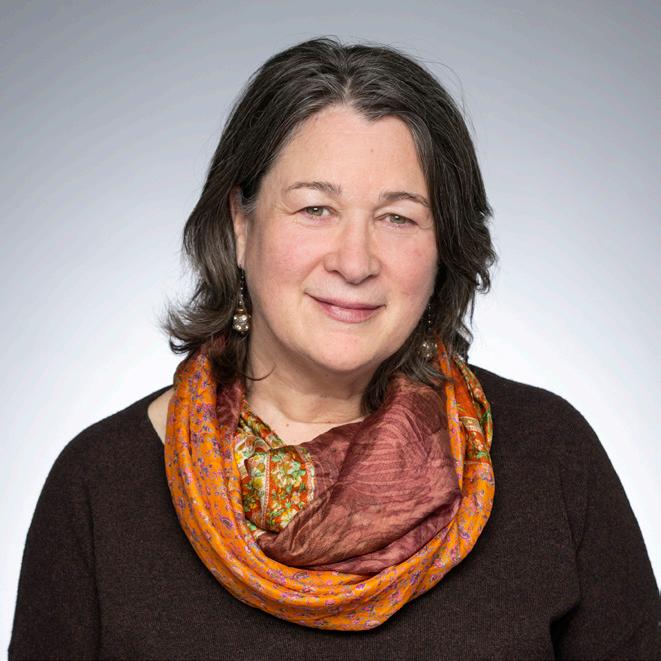
Together, thanks to the learners and educators, we have refined our methods to respond more effectively to the needs of our clients.
Together, with the support of our funders, partners, and English-speaking partners, we have strengthened our organizational capacity and expanded our reach.
It is together, thanks to the collective intelligence of our teams, all the actors in the LBS sector and the Francophonie, that we will continue our work and maintain our leadership role in order to continue to respond in a relevant and effective manner to the needs of Francophone adults in Ontario.
And together, we will ensure the flourishing of Francophone adults and the economic, social and cultural vitality of our communities.
Thank you to the pioneers and practitioners of the LBS sector, to our funders and to all our partners!
4 introduction
Gabrielle’s photo: Mélanie Provencher
THE HISTORY OF COFA through its Directions
Suzanne Benoit was the very first director of the Coalition ontarienne de formation des adultes (COFA), when it was not yet called COFA.
BUT LET’S START AT THE BEGINNING...
In the early 1980s, illiteracy was summed up in a simple and unambiguous idea: the inability to decipher a text in one’s own language or to write one. When the Southam News chain published the results of a survey in 1986 on the literacy levels of the populations of the countries in which it had media outlets, namely the US, Canada and several European countries, it dropped a bombshell.

5 The History of COFA through its Directions
“The team does a lot more with what they’re given than what’s asked of them”
Gabrielle Lopez
“COFA was an amazing experience because I was starting something from scratch”
Suzanne Benoit
“We are changing lives”
Michel Robillard
The survey assessed reading/writing skills in everyday tasks. The results for Canada: 24% of people are considered “illiterate”, with 19% English speakers and 28% French speakers.
A few of these groups are beginning to offer services in French. Suzanne was one of those early groups and left her teaching position to take over the leadership of the “Moi j’apprends” Literacy Centre in Rockland, Russell County. She remembers that it was not easy: no literacy materials, no clear guidelines or policies. But the centres got organized, recruited learners, developed materials and strategies, and began their work in the field.
Canada immediately recognized that illiteracy was a major social issue. In 1988, the National Literacy Secretariat was created. At the provincial level, Ontario implemented its first literacy policy. That same year, several literacy groups were organized in the field, with environmental studies and an initial offer of services.

However, these willing groups felt isolated, so they agreed to form a group. The “Regroupement des groupes d’alphabétisation populaire de l’Ontario (RGAPO)” was born. It was mandated to provide training and support to its members and it worked for about ten years. The task is not easy, because the realities and needs in the field are very different from one centre to another. However, there is a good level of mutual support between the different groups across the province.
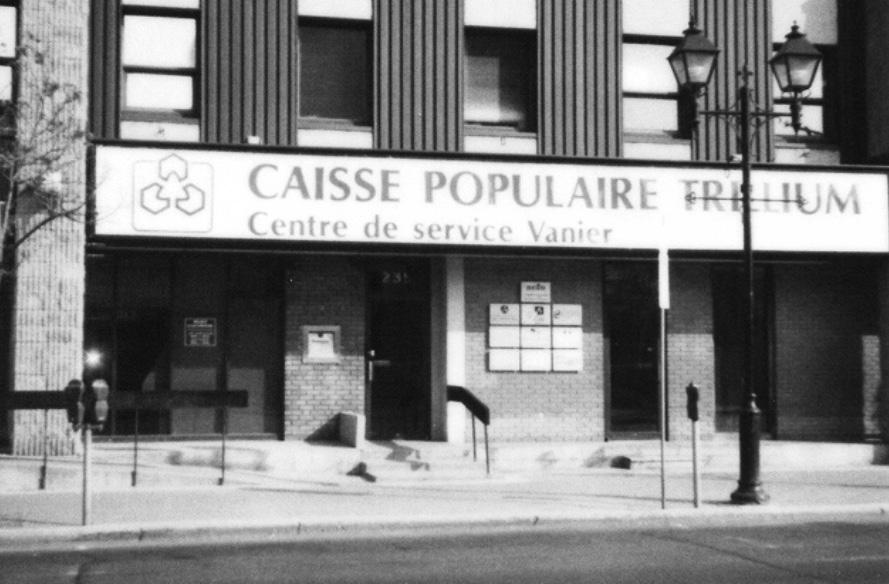
After about ten years, the same Department decided that it would be more efficient to create a group of all organizations offering adult education, including school boards, colleges and universities. It would then have only one interlocutor. The RGFAPO refused to make this shift, wanting to remain faithful to its mission with community groups. This reluctance led to the Department’s decision to form a new organization in 1998, the “Coalition francophone pour l’alphabétisation et la formation de base (CFAFB)”, which includes all the actors working in adult education. This new organization opened an office in Toronto and moved to Ottawa in 1999. Suzanne took over as head of the organization after leaving her job as director of the “Moi j’apprends” Literacy Centre in Russell County.
Suzanne remembers that everything was still to be done: “We were creating a provincial organization, with members already established, but from scratch. It all started very quickly, with no offices, no computers”. She remembers writing her first grant applications by hand, then having them typed up and sent to the Ministry of Training, Colleges and Universities.
Her first major challenge in leading this new Coalition was to bring together very different organizations that did not speak to each other: school boards, colleges, literacy and basic skills
6 The History of COFA through its Directions
Canada immediately recognized that illiteracy was a major social issue.
COFA’s first offices in Ottawa
Suzanne Benoit, Director from 1999 to 2012
centres. Suzanne remembers putting a lot of energy into this task. Community-based training groups felt threatened by the presence of college campuses, which had better funding, supervision and resources. With the support of her Board of Directors, she will develop strategies to ensure that everyone talks to each other, finds their place and helps each other, for the benefit of the communities.
This is one of the things she remembers with great pride: the contacts she helped to create between the different organizations, the exchanges and the conviviality that carried forward the Coalition’s brand new network of members and partners. This was one of the goals she pursued throughout her 12 years of leadership of the Coalition, from 1999 to 2012. She believes that the mutual support and goodwill that prevailed was a large part of her organization’s success.
CFAFBO becomes Coalition ontarienne de formation des adultes (COFA)
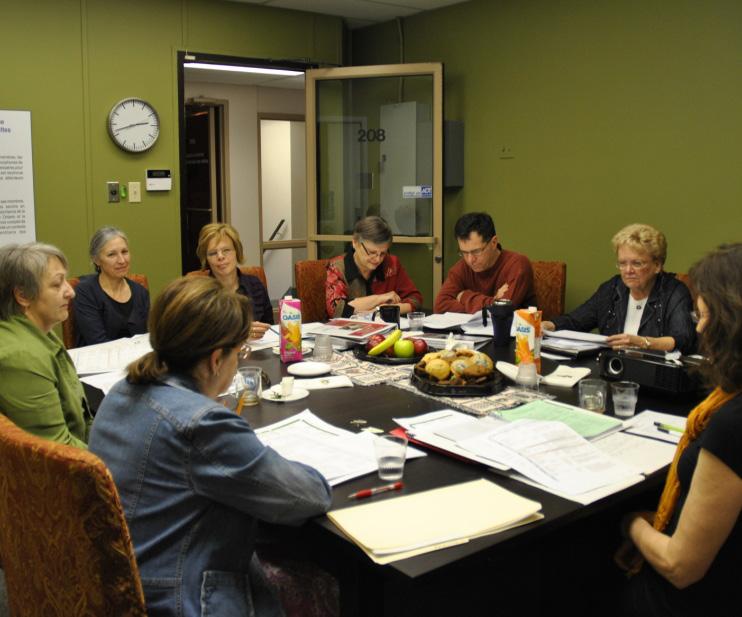
In 1998, the Ontario Ministry of Training, Colleges and Universities, which is responsible for funding literacy in the province, asked the “Regroupement des groupes francophones d’alphabétisation populaire de l’Ontario (RGFAPO)” to integrate the colleges and universities that offer adult education.
When the RGFAPO refused, the Ministry set up a new group, the “Coalition francophone pour l’alphabétisation et la formation de base en Ontario (CFAFBO)”, which was created in 1999. Initially based in Toronto, the Coalition moved to Ottawa and opened new offices. Suzanne Benoit took over the leadership of the new organization after resigning as Director of the “Moi J’apprends” Centre in Russell County, east of Ottawa. In 2006, during its first strategic planning exercise, the “Coalition francophone pour l’alphabétisation et la formation de base” decided to change its name to the “Coalition ontarienne de formation des adultes (COFA) “, with the slogan “Votre partenaire en formation” (Your partner in training), since the need to ensure a continuum of services in the communities was already evident at that time.
7 The History of COFA through its Directions
This is one of the things she remembers with great pride: the contacts she helped to create between the different organizations, the exchanges and the conviviality that carried forward the Coalition’s brand new network of members and partners.
Meeting, Littéracie des pères, March 2010
A SLICE OF HISTORY: 2006
PROFESSIONALIZE THE ENVIRONMENT
One of the many challenges COFA faced early on in its history, Suzanne recalls, was staff turnover in the province’s community literacy centres. The centres’ limited financial resources made it difficult to recruit general management and competent practitioners. These jobs were often part-time and poorly paid, making them unattractive. COFA supported the centres from the beginning with training materials so that they could professionalize their staff.
Suzanne remembers that the trainers did their best in the community groups, keeping their grassroots philosophy: learners came with a certain background and the centres tried to take them a little further in their learning process. As a teacher, she regretted that there was no program to guide these practitioners, who were rarely trained to teach. Very often, they took for granted that the learner had a good foundation, started their training only to realize that they had to go back to certain notions, and proceeded by trial and error with the learners. Many of them became discouraged during this process. There was still no real evaluation of the people who came to the centres.
The “Moi j’apprends” Centre, explains Suzanne, “had adapted the Quebec adult education program, but it was a fairly unique example”. Everyone was tinkering with their own training tools. For example, New Brunswick had created a system of workbooks that ensured a progression of learning. The person who came in was assessed with rudimentary tools and began his or her training at different levels in the workbook. This tool at least ensured logic and follow-up in the process, believes Suzanne.
According to her, a lot of energy was devoted to these two activities: on the one hand, bringing all the actors together, and on the other, professionalizing those who needed it.
THE ONTARIO ADULT LITERACY CURRICULUM FRAMEWORK

( OALCF )
It is in this context of professionalization that the Ontario Adult Literacy Curriculum Framework (OALCF) arrived. Launched by the province in 2011, it has provided structure to the entire adult learning process. Developed by Anglophones, Francophones, Indigenous people, people with hearing loss, and adult educators over a period of months, it made clear connections between literacy skill development and real-life tasks, whether in the context of work, learning, or social relationships. From these tasks, activities and sub-activities were identified, such as writing a note to a spouse or child. “The arrival of the OALCF has been wonderful for me,” says Suzanne with a big laugh.
COFA supported the centres from the beginning with training materials so that they could professionalize their staff.
The arrival of the OALCF has been wonderful for me!
FAMILY LITERACY

Another of her first big endeavour was family literacy. During her teaching career, she had seen firsthand that children entering school had very uneven baggage. Many of those with the least amount of baggage were unable to overcome this handicap during their schooling years. She believes that families are largely responsible for this baggage and that family literacy is one way to equip children for success in school and work. It was the National Literacy Secretariat at the federal level that took the initiative to fund family literacy activities across Canada. COFA immediately began writing requests for grants to develop programs and support the centres.
In particular, Suzanne remembers a project the Coalition did to develop tools for families, specifically for fathers, because at the time, homework help was often the responsibility of mothers. She still regrets that the funding stopped just as the programs were starting to be implemented on the ground. The new federal government wanted to redirect efforts towards employability. And she is pleased that as of 2021, the federal government has begun funding family literacy initiatives again.
Release of the 2010 Family Literacy Report
Commissioned by the COFA, this report, written by David Sherwood, reviews the results of French-language family literacy programs offered in Ontario between 2007 and 2009. It follows a series of studies and reports that have analyzed the modalities and benefits of these early programs in Ontario since their inception in 1995. It continues the analysis of the issues associated with the delivery of these programs from the perspective of the administrative and financial resources they require, taking into account the particularities of the francophone environment.
Based on the analysis of questionnaires completed by nearly 400 participating parents, this report highlights the beneficial changes recorded:
• Increased reading activities, with frequency increasing from 35% to 43%;
• Increased use of French at home;
• Enrollment of a parent in other training programs;
• Increased parent-child activities;
• Improved self-confidence;
• Helps break the isolation.
9 The History of COFA through its Directions
A SLICE OF HISTORY: 2010
And she is pleased that as of 2021, the federal government has begun funding family literacy initiatives again.
10 years of the F@D Program
In September 2021, the Program “F@D” celebrated its 10th anniversary.
“F@D” stands for “Formation à distance”, this training program is designed for Francophone adults in Ontario with a completely free online course offering in two formats: live or self-directed learning. This program was initiated in 2011 at the request of the Ontario Ministry of Training, Colleges and Universities (now the Ministry of Colleges and Universities). The first course offered began in October 2011. In its early days, the program had only three staff members and a few courses. By 2021, when it turns 10, the program has two data entry clerks, five practitioners, one lead practitioner, one technician, one graphic designer and one program manager. Course offerings included over 15 live courses and 35 stand-alone courses in French, math, computer and generic skills. Today, the F@D program offers more than 20 trainings, 50 micro-trainings and reaches a diversified clientele across the province.
DISTANCE EDUCATION
This was one of the other major files that came across Suzanne’s desk shortly before she passed the torch to Michel Robillard. By offering distance education, “COFA was becoming a service provider”, Suzanne notes, which it had never been before. It was a completely different direction. In 2011, this field of activity was very underdeveloped, with little possibilities for interaction, and most activities were limited to reading texts online, followed by questionnaires.

Since the learners had very different levels and reading text was not within the reach of everyone, COFA initially needed to develop new tools. It was therefore necessary for the training to be interactive. “To sum up, there was quite a learning curve”, explains Suzanne with a smile.
The first year of designing the Distance Education programs was difficult, as the staff hired had to be trained in the principles of distance education first. Fortunately, the Anglophone
10 The History of COFA through its Directions
By offering distance education, “COFA was becoming a service provider”, Suzanne notes, which it had never been before.
Célinie Russell, program coordinator, 2013
A SLICE OF HISTORY: 2021
literacy groups had a similar mandate, so there was a lot of discussion and collaboration on the issue, with adaptations and translations on both sides.
However, there was significant pressure from the Ministry to deliver concrete results and, at the same time, there was strong resistance from community and institutional groups to distance education. It was seen as direct competition to the activities of the centres. Added to this was the fear that learners would prefer to stay at home during their learning process. It took a lot of convincing to sell the idea of hybrid models. Similarly, while some learners immediately appreciated the flexibility of the F@D, many also felt intimidated by its technological aspects. “COFA had to work very hard on all fronts to sell this idea”, recalls Suzanne.
When Michel Robillard took office in 2012, the project was still in its infancy. But as he says himself, the F@D quickly became his pet project. However, he had to start by convincing the members of his board of directors and all the centres to embark on the adventure. Looking back, Michel is still amazed at how far they’ve come: today, there is a real Francophone ecosystem in LBS, with integrated face-to-face and distance learning. The F@D has become a common tool used by all the centres, it has lost its threatening side to become a technological tool widely used by the centres, which improves the work of the practitioners.
Michel mentioned that each year the Ontario LBS system (Anglophones, Francophones, Indigenous people, hearing impaired) gives education to 40,000 to 45,000 people. About 10% of these are Francophones, although they represent just
over 4% of the Ontario population. For him, this is a very high penetration rate that shows that the COFA is performing well and that it meets a need. “It is its performance and the credibility that comes with it that has increased COFA’s visibility”, he explains. The Francophone ecosystem and its level of integration are part of this...
With these good results, the grant received for distance education has been maintained and even increased in the following years. Michel also mentioned that a Canadian distance education platform is currently being implemented by COFA and its partners in seven provinces and two territories, directly inspired by COFA’s platform.
The Council of the Federation Award for F@D in 2022
In 2022, the COFA’s Distance Education (F@D) program received the Council of the Federation Literacy Award, along with five other members of the Ontario e-Learning team. This award is given in all 10 provinces and 3 territories to recognize outstanding achievement, innovative practices and excellence in literacy. Needless to say, the F@D program team was extremely proud.
The Council of the Federation Literacy Award was created in 2004 by Canada’s First Ministers. It is awarded annually to practitioners, volunteers, learners, community organizations and businesses in a wide range of literacy-related fields, including families, indigenous people, the health sector, workplaces and communities. The award recognizes those who devote significant time to learners by providing knowledge or expertise.
11 The History of COFA through its Directions
The F@D has become a common tool used by all the centres, it has lost its threatening side to become a technological tool widely used by the centres, which improves the work of the practitioners.
A SLICE OF HISTORY: 2022
A SECOND WIND
But not everything was rosy when he took over the ship from Suzanne. He remembers dealing with rough seas. The big challenges were mainly financial in 2012. Like many LBS organizations, the Coalition had just been informed that it was losing its annual operating grant of $279,000 from the now defunct Office of Literacy and Essential Skills (OLES), out of a total budget of about $800,000. At the same time, the provincial Ministry of Training, Colleges and Universities seemed reluctant to maintain funding for distance education because of mixed initial results. It should be noted that the start-up of the project had required the establishment of an entirely new infrastructure, the development of expertise and new programs. This second grant was in the range of $400,000. This was almost all of the organization’s annual funding. So there was a risk.

It was decided, after discussions with the Board of Directors, that 50% of the new Executive Director’s time would be devoted to convincing funders of the importance of LBS and its impact on individuals, on the centres and on Ontario’s Francophonie. For Michel, the main challenge was to position COFA as a professional organization open to innovative approaches, of which distance education was one, so that it would receive the funding it needed.
While Michel was aware of essential skills issues when he came to work, he was surprised by the scope of the LBS Program in Ontario. He remembers his very first BOD meeting and feeling very small in his shoes. He says he learned a great deal from those who became his mentors during his eight-year tenure. It helped him to develop a greater empathy for the people who attended LBS centres, to better understand their needs.
On a personal level, Michel feels that this is the most meaningful job he has ever had. He realized very quickly the enormous impact LBS has on people’s lives. “We are changing lives”, he exclaims.
One of the first things he put in place was a strategic plan, accessible and simple, with clear objectives: adequate funding for the Network, professionalization and development of Distance Education. He worked to rally all the centres around this plan and its objectives. And for the COFA, he suggested an additional internal objective that would change every year, for example: review all computer systems, review personnel policies, salaries and working conditions, make sure to have the necessary equipment and skills for the F@D, etc.
He says he learned a great deal from those who became his mentors during his eight-year tenure. It helped him to develop a greater empathy for the people who attended LBS centres, to better understand their needs.
Not everything was rosy when he took over the ship from Suzanne. He remembers dealing with rough seas.
Of course, there have been some storms, with changes in governments with very different visions on the LBS issue, with the pausing of the “Réseau pour le développement de l’alphabétisme et des compétences (RESDAC)“, the only national organization playing a key role in the LBS environment in Canada, with its vision and innovative proposals.
But he believes that these gales are nothing compared to the perfect storm that COVID represented. For COFA, as well as for all LBS stakeholders, it was an important turning point. And he is proud that COFA was able to continue to provide services despite the circumstances and pitfalls, even though he had handed over the reins to Gabrielle Lopez, the organization’s third Executive Director, at that time.
The 2016 Cathexis report
Commissioned by the Ministry of Advanced Education and Skills Development in Ontario, this report is entitled “Evaluation of the Literacy and Basic Skills (LBS) Program”: Final Report. It is better known by the name of the firm that produced it. This report presents the evaluation of Ontario’s LBS programs in terms of relevance, effectiveness and efficiency over the period April 2012 to March 2016. It concludes that LBS service providers are achieving excellent results at lower cost.
Among its findings are:
“Given these limitations on funding, it is impressive that LBS providers are able to offer such responsive services”.
“Considering that LBS costs per hour are not much higher than college costs in Ontario, and that LBS provides personalized services to learners who often face complex barriers, the costs can be considered reasonable”.
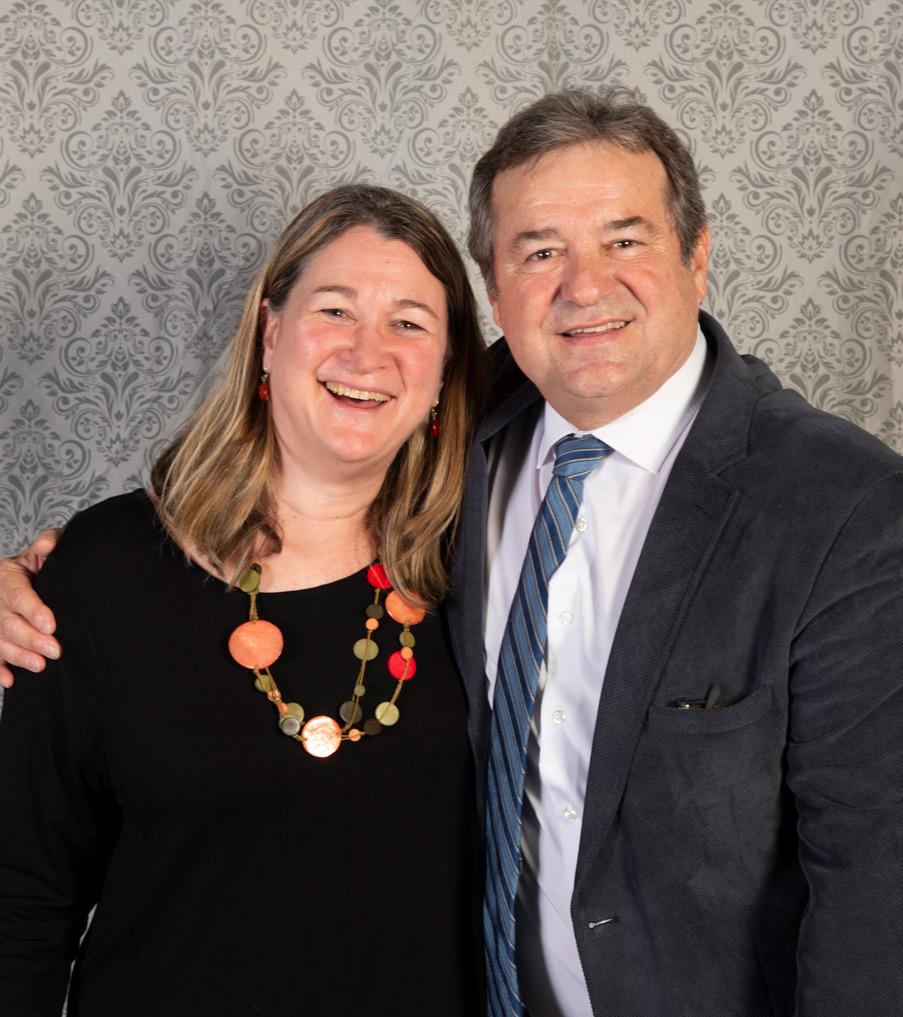
“Perceived enablers of effective and efficient service delivery include committed and qualified staff, relationships with other agencies, and in-kind contributions from individuals and organizations”.
“Perceived barriers include inadequate funding and departmental performance management processes”.
“It should be noted that the perceived enablers are external to the department, while the perceived barriers are internal to the department. This raises the troubling possibility that, aside from the important exception of providing the funding that makes LBS possible, the department may currently be doing more to decrease the efficiency and effectiveness of the LBS program than to increase it”.
13 The History of COFA through its Directions
But he believes that these gales are nothing compared to the perfect storm that COVID represented.
Gabrielle Lopez and Michel Robillard
A SLICE OF HISTORY: 2016
THE COVID STORM
Gabrielle Lopez, who took office as the new executive director in late 2019, notes that COVID is not one of those catastrophic events that are followed by a return to normalcy. The pandemic had a profound impact with no way back. It was necessary to review the ways of working, to develop new processes so that the COFA team could operate in virtual mode, new administrative processes, new ways of communicating with an increased presence on social networks; it was also necessary to support the centers so that they could continue to offer their training services, but by necessity, at a distance. It was therefore necessary to rethink everyone’s roles in order to continue to adequately support learners. “This is no small feat,” says Gabrielle.
THE STRENGTH OF THE TEAM
Over time, the COFA’s playing field has become much more complex: there are local, provincial and national projects, there are Francophone and Anglophone partners, and there are requests from the field and from government departments. Gabrielle lists what this means in concrete terms: “we manage provincial training projects, we offer support to practitioners (managers, trainers, clerks, etc.), we create, adapt or translate resources, we represent LBS to funders and stakeholders, we manage a provincial network of members, we manage a pan-Canadian network with the “PCFAD” platform for Distance Education and we offer professional development for this new
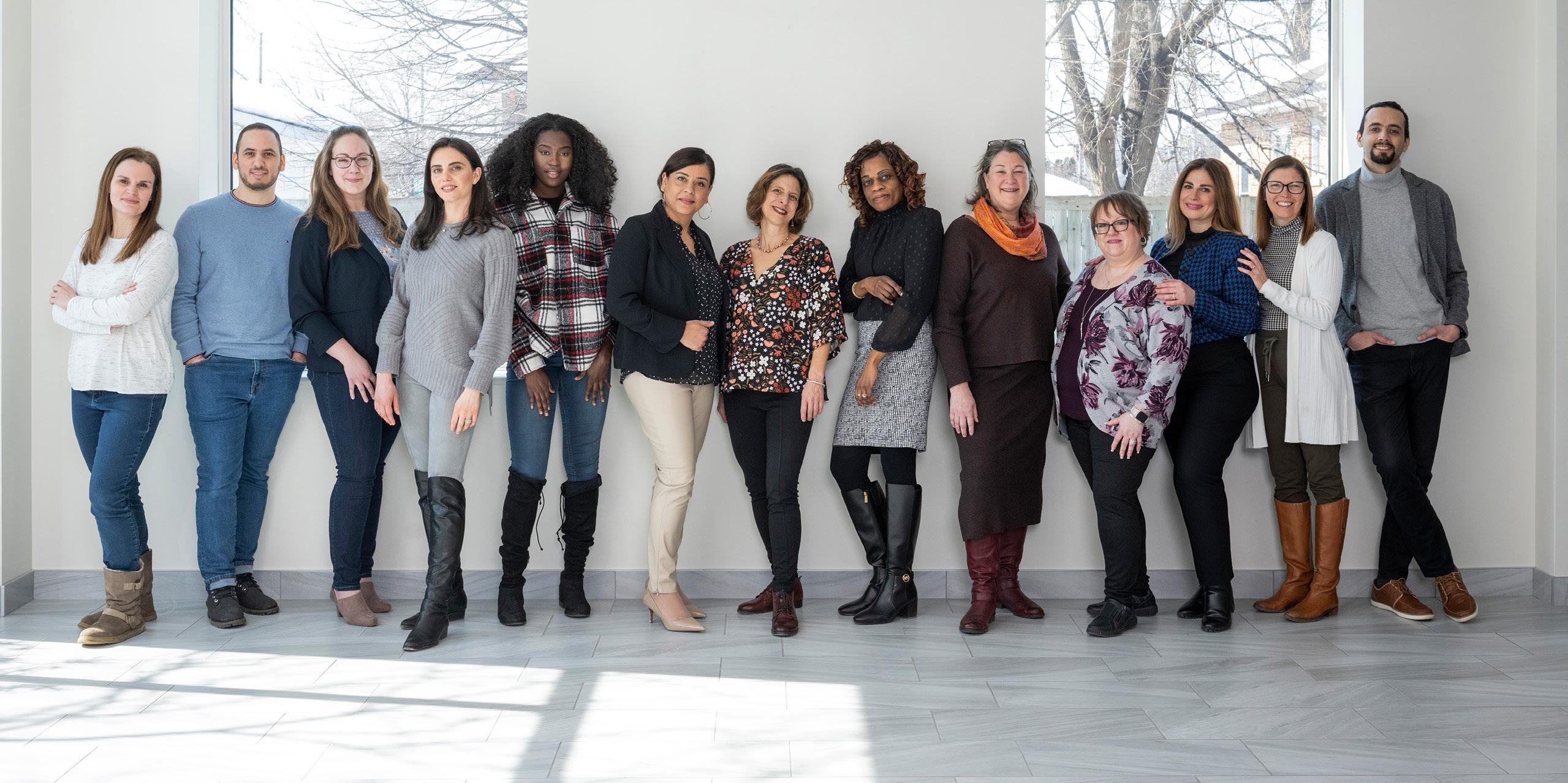
network”. She concludes, “It’s a big boat to steer, we’re always at the end of our capacities and the team does a lot more with what they’re given than what’s asked of them”.
Michel sees COFA’s success as the result of a collective effort. “You’re only as good as your team”, he says, recalling his years as director. He sees one of the strengths of this team as its diversity, and he is pleased that Gabrielle is able to take advantage of it as well: “The way of the future is the way of diversity”. For him, the ability to provide good services to learners also relies on the ability to embrace the full diversity of those learners. The diversity of a team guarantees a good understanding of the issues, a good representation and a capacity for broad, potentially innovative thinking. For him, this is one of the keys to success, now and in the future.
Suzanne also mentions the importance of the collective: what makes her most proud is having succeeded in harmonizing the network, in promoting contacts between the different organizations, in fostering the exchanges and the conviviality that made it move forward when it was barely born. And for her, the COFA’s successes are in large part due to the mutual support and good understanding within the Coalition.
14 The History of COFA through its Directions
The diversity of a team guarantees a good understanding of the issues, a good representation and a capacity for broad, potentially innovative thinking.
Part of the COFA team
Photo: Mélanie Provencher
Launch of the PCFAD in 2021
On January 25, 2021, the COFA and its partners launched the “Plateforme canadienne de formation à distance (PCFAD)”. The launch took place virtually on YouTube with partners across Canada. This new platform is intended for Francophone adults with low levels of competency in various fields. The training offered includes improving essential and generic skills in literacy, numeracy, computer literacy, communication and conflict management. They are designed to help individuals prepare for employment and the needs of the local labour market.
Gabrielle Lopez, COFA’s Executive Director, stated at the launch that, “PCFAD comes to bridge the digital divide in essential and generic skills in Official-language minority communities (OLMCs)”. Thanks to its 5 partners, Collège Mathieu (Saskatchewan), Pluri-elles (Manitoba), The Learning Centre Literacy Association (Alberta), Collège de l’île (Prince Edward Island) and the Nova Scotia Literacy Team (Nova Scotia), learners in these provinces will be able to access personalized, fun training that complements the programs offered in person. Many more Francophone adults will be able to benefit from distance education across Canada. The project was funded by the Government of Canada through the Office of Literacy and Essential Skills (OLES) and Employment and Social Development Canada.
When asked, Suzanne’s former partners in the field agreed with her. For Louise Lalonde, who took over the direction of the “Moi J’apprends” Centre, there has always been a common affinity and close collaboration between “Moi j’apprends” and the COFA, between her and Suzanne, such as for the creation of the “Partenaires pour l’éducation et la formation des adultes” (PÉFA) program, or with the provincial awareness campaign “With adult education, it’s possible”. She says, “Working with the COFA staff is wonderful! There is no better partner: the COFA is always listening, always there, with dedicated, competent people who care about the success of learners”.
For Mona Audet, Director of Pluri-elles (Manitoba) and President of the Board of Directors of the RESDAC (of which the COFA is a member), the support provided by the COFA in the 2000s completely changed the situation for her organization. “There was this huge project in Suzanne Benoit’s time, “Learning for Life”, a project that gave us the ability to assess our clientele and also gave some confidence to our practitioners”. She recalls that there was a great complicity between the Ontario and Manitoba practitioners and exchanges that lasted over time. More recently, the COFA supported Pluri-elles in its successful transition to online training. “It’s all thanks to the partnership with COFA, because we wouldn’t be here without their support. Their team trained us on e-learning”, she concludes. The COFA also shared sample tests in French, math and office automation with her organization.
Gabrielle is aware of this strength and aspires to continue the efforts to connect with members, between the regional service coordination and service providers. She would even like to push the links even further, to create new relationships, especially to facilitate referrals by the different agencies,
employability programs and associations that support newcomers. “It would also allow us to reach out to clients who are usually out of reach”, she explains.
CONTINUITY IN EVERYTHING
As Suzanne mentioned, the COFA has had only three different directorships since its birth in 1999, a rarity in the community organization landscape. This could explain the exceptional linearity of her career.
Michel Robillard feels the same way, with the sense that he received a relay baton from Suzanne in 2012: he was picking up that baton to continue the effort with the same vision. “No leadership has tried to reinvent COFA”, he believes. For him, everything was done in continuity. He feels he took the lead of a small, perfectly organized structure, took it further and then in turn passed the baton to Gabrielle Lopez in 2019, but continued to support the organization, acting regularly as an advisor. “I still have a lot of attachment to the COFA”, admits the man who also continues his mentorship with various team members.
15 The History of COFA through its Directions
A SLICE OF HISTORY: 2021
THE FUTURE
All three are optimistic and confident about COFA’s future.
Michel is pleased that tight management, with respect for deadlines and budgets, brings good credibility to the organization with funders. “Funders like nothing better than organizations that deliver on budget and on target”, he says with a big smile. He thinks that’s what the current executive director is doing, and believes she will continue to do so.
Suzanne says that the COFA is a valuable resource for departments, members and partners, and she wants to believe that it will continue to be so.
Gabrielle, for her part, recognizes that when she took up her position, things were going rather well: Michel had developed the distance learning component, he had set it up well and at the same time succeeded in making the COFA stand out. Thanks to this, she knew that when she arrived, she could count on recurrent funding, good credibility, good partners, and in general, a relatively healthy network.
She has many wishes for the future of the COFA. Of course, she would like to contribute to building an increasingly efficient network, a learning network, with adequate resources and means, a network in which all members would have access to tools, support, training, a network in which everyone can give the best of themselves. But what she would like most of all is a network that offers space for reflection and for training. “There
is little time for that now”, she says. She believes that meetings strengthen solidarity and facilitate the creation of links. So, finding a healthier work rhythm, finding time to reflect individually and collectively, would undoubtedly help nourish the COFA team, a “formidable and hyper-performing” team made up of “people with a heart, who care about a job well done”, adds Gabrielle. She is working on it!
The Saga of the Translation Fund
Michel Robillard recalls that at his first AGM as the COFA Executive Director in 2012, he heard centres expressing regret about the lack of resources in French. This issue has been raised regularly over the years, both by the COFA members and by members of its Board of Directors.
Several requests were made to the Ministry of Colleges and Universities to remedy the situation. The COFA requested recurrent funding to translate and adapt materials developed by the province’s Anglophone counterparts. The rationale for these requests was based on the French-language Services Act. After lengthy negotiations and decisive intervention by the Office of the French-language Services Commissioner of Ontario, an agreement was finally reached in 2019 with the Ministry of Labour, Training and Skills Development (MTFDC) 1 .
The COFA is now receiving an additional $50,000 solely for the translation and adaptation of many of its English-language resources, both in print and online.
These resources, accessible through the Translation Fund section of the COFA Website, are available to all: trainers, the COFA network managers, and Francophones interested in these French resources. Among the documents translated: departmental notices, information kits, reports, webinars from the Pop Up Webinars series, teaching materials and many other information sheets.
16 The History of COFA through its Directions
She would like to contribute to building an increasingly efficient network, a learning network, with adequate resources and means, a network in which all members would have access to tools, support and training.
A SLICE OF HISTORY: 2019
1 Now called the Department of Labour, Immigration, Training and Skills Development (DLITSD).
THE COFA Viewed from the Field
“We needed a provincial umbrella organization to speak for us collectively, to speak in unison with the same message. The arrival of the COFA delighted everyone and in a short time, we felt a wind of change.”
When he took the lead of the COFA in 2012, Michel Robillard recalls that one of the main issues he immediately faced was funding for the COFA. To that end, with the approval of the Board of Directors, he devoted 50% of his activities to raising awareness among funders about the importance of LBS, its real impact on individuals and on all Francophone communities across the province.

Louise Lalonde
Photo: Mélanie Provencher
The Ontario Adult Literacy Curriculum Framework
As early as 2007, Ontario’s Action Plan stated that, in response to its “A Knowledgeable Ontario” plan, Ontario would work with the college sector and LBS agencies to develop and deliver an adult literacy curriculum. The first phase of the design of the Ontario Adult Literacy Curriculum Framework took place in 2008-2009 and the curriculum was finalized in 2010-2011. Many LBS stakeholders were involved in its development through a series of projects, and through their responses to the question, “What should learners in literacy programs learn?”
A particularly critical document for practitioners in the field, it establishes clear links between the development of literacy skills and the tasks actually performed in the context of work, learning or exchanges. A consensus was reached by the various stakeholders on the set of competencies that would make up the framework:
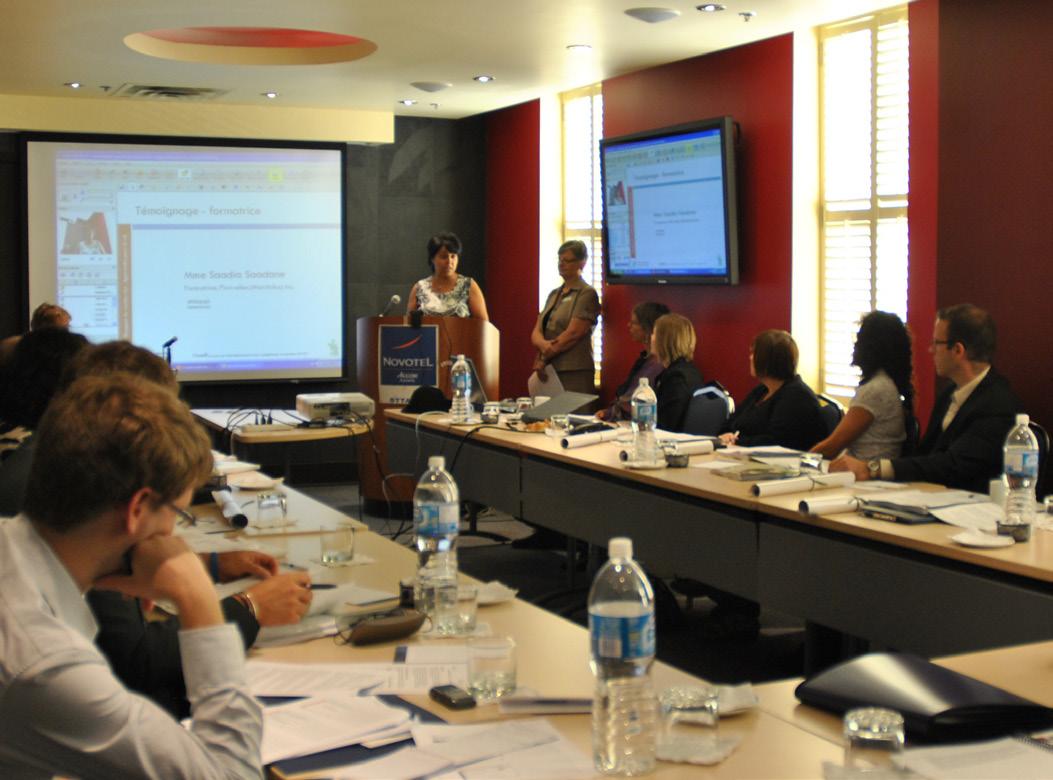
• Search and use information
• Communicate ideas and information
• Understanding and using numbers
• Using digital technology
• Managing learning
• Engaging with others
The CLAO Framework was modernized in 2021 and is now called the Skills for Success Framework.
Renaud Saint-Cyr, a member of the COFA’s Board of Directors since the beginning and President of the Board for the past 13 years, said that one of the COFA’s main roles, and one that it plays very well, is that of an advocate for LBS Centres and Learners. Louise Lalonde, former Director of the “Moi J’apprends” Centre and still very much involved in the field, remembers the birth of Literacy Centres in the province, which were trying to organize themselves to improve their efficiency in the field. According to her, each centre brought its financial concerns to the Ministry. “We needed a provincial umbrella organization to speak for us collectively, to speak in unison with the same message. The arrival of the COFA delighted everyone and in a short time, we felt a wind of change,” she says.
One of the first impacts that the COFA had on the Centres, says Louise, was in terms of funding. She recalls that in the early days of popular literacy, LBS activities took place almost around a kitchen table, with a lot of volunteer work. Funding needs were limited at that time. Over time, the Centres and their missions grew and needed more funding, for renting space, for salaries, for developing materials, etc. This is where the COFA has been able to exercise its advocacy role by calling for more funding. But it also positioned itself as an expert organization in its field: “From the beginning,” recalls Louise, “the ministry began to ask the COFA’s input in certain files. The other cultural groups were also asking for its support for various initiatives, so it was welcomed by everyone. I believe that today, we could not do without the COFA,” she concludes.
18 The COFA Viewed from the Field
I believe that today, we could not do without the COFA.
A SLICE OF HISTORY: 2011
Launch of the “Apprendre pour la vie (Learning for Life)” Report, 2010
LISTENING TO ITS MEMBERS
For all interviewees, the COFA has always listened to its members. Suzanne Benoit, the COFA’s first Executive Director, devoted a lot of energy to listening to and bringing members together from the beginning of her mandate. The diversity of organizations involved in LBS created tensions, many concerns, as community groups felt that they were competing for LBS with the colleges who had more resources. She takes great pride in having succeeded in creating a climate that is conducive to exchange and mutual support.
The Learning for Life report
Published jointly by the COFA and Pluri-elles (Manitoba) in September 2010, the report “Apprendre pour la vie (Learning for Life)” presented the results of an action-research project on the impact of literacy on learners and their environment, which was carried out from 2007 to 2010 with Francophone adults in both provinces. This action research established that the transfer of essential skills acquired during LBS training by learners was applied in their personal, family, social and community life, as well as in all spheres of employability. More than 600 learners, as well as people around them and Francophone practitioners from Ontario
This has been a constant preoccupation for Suzanne throughout her mandate and, if we are to believe Louise Lalonde, a real success: “Working with the COFA staff has been wonderful,” she exclaims. “There is no better partner, the team is always listening, always there, with dedicated, competent people who had and still have at heart the success of learners”. Louise also mentions that the COFA has supported members on another level. “The majority of the COFA members are Community Centres,” she explains. “They don’t always have a lot of staff. The COFA, under the leadership of Michel Robillard, its director, has been able to raise the credibility of community literacy. We were already out of the kitchen, but in a way, we thought we were still there. Michel has standardized the credibility of all members, whether it’s a college or a community centre”.
Peter Hominuk, who has long served Franco-Ontarians in Huronia and is now the Executive Director of the Assemblée de la Francophonie de l’Ontario (AFO), says that the COFA supports the day-to-day work of its members in the field. “By offering services and resources, it makes outreach work more effectively, creates common approaches and frees up time for LBS Centres in the field, which are poorly funded and suffer from a chronic lack of human resources and time,” he says.
and Manitoba, participated. The results presented were intended to be useful to LBS program managers, adult education centre directors and staff, and government, institutional and community partners.
Mona Audet, Executive Director of Pluri-elles, recalls that the project lasted a whole year and that it contributed greatly to putting the Manitoba Organization on the map. For her, the project was a great success, which gave the trainers confidence and her team the ability to evaluate the clientele of her centre.

There is no better partner, the team is always listening, always there, with dedicated, competent people who had and still have at heart the success of learners.
A SLICE OF HISTORY: 2010
Literacy Skills of Francophones in Ontario
In April 2015, the report “Les compétences en littératie des francophones de l’Ontario : état des lieux et enjeux émergents” was published. Written by Julien BérardChagnon of the Social and Aboriginal Statistics Division at Statistics Canada, it was commissioned by the COFA and RESDAC and funded by Employment Ontario.
The main purpose of this report was to examine the status of Francophones in Ontario with respect to literacy skills and to highlight a number of issues that they were likely to face in the coming years. Its main objectives were to:
• examine the literacy levels of Ontario Francophones and compare them to their Anglophone counterparts and to other Francophone groups;
• identify the key factors influencing the literacy levels of Ontario Francophones, particularly those with lower levels of literacy;
• to identify the key issues and challenges that Francophones in Ontario were likely to face in terms of literacy, numeracy and problem-solving skills in technological environments.
Previous surveys have shown that Franco-Ontarians’ literacy performance has improved, although it remains lower than that of their Anglophone counterparts, and that there is a gap between the two language groups in the use and practice of writing-related activities.
The report highlighted data from the 2014-2015 of the PIAAC international survey, which had found that Ontarians with French as their first official language scored similarly to their English-speaking counterparts in literacy, numeracy and problem solving in technological environments. This result could be explained by the marked increase in educational attainment of FrancoOntarians over the past few decades.
However, several factors also influenced literacy levels, such as aging or immigration. For example, despite high levels of education, Francophone immigrants faced barriers that affected their literacy levels, including their level of fluency in French and English.
Followed on page 23
AN EXEMPLARY PARTNER
Outside the province, other organizations seem to agree. Mona Audet, Executive Director of Pluri-elles in Manitoba, personally remembers the great complicity she shared with Suzanne Benoit, as well as a very strong sense of the field, very much focused on the needs of people, whether they are practitioners or learners. She remembers, in particular, a major project conducted jointly by the COFA and Pluri-elles, which resulted in the report “Learning for Life”, published in 2010. It reported on an action-research project on the impact of literacy on learners and their environment, conducted from 2007 to 2010 with Francophone adults in both provinces. The project aimed to better understand the needs of learners and to better serve them, she explains. “We still use the results today. This project put Pluri-elles on the map. The project was a great success, which gave us the ability to evaluate our learners, and which also gave confidence to our practitioners”. She also mentions the same complicity between the practitioners and their Ontario counterparts, with exchanges that have lasted over time.
“The COFA was always willing to participate in different projects to help other communities. To help further our research, our work, and the work we do with learners”. She adds another, much more recent example of the COFA’s support for her organization: “When COVID came along, we were fortunate to be able to take advantage of distance education. Now we have a lab, we offer online training, all thanks to the partnership with the COFA, because we wouldn’t be here without their support. We were able to train on online training, through F@D”. The COFA also shared sample exams with the Manitoba organization.
Mona is still very enthusiastic about this new tool: “One of the great advantages of the F@D is that it allows many people to review their basics in French, mathematics and office tools. We can in turn offer online training to all those who prefer to study at home rather than travel”. For her, the COFA is an excellent partner, who does not hesitate to support other organizations throughout the country.
20 The COFA Viewed from the Field
The COFA was always willing to participate in different projects to help other communities.
A SLICE OF HISTORY: 2015
ACTIONS CENTERED ON THE LEARNER

While he spoke of the importance of the COFA’s advocacy role, Michel Robillard said that for him, the Coalition is first at the service of its members and, more broadly, at the service of learners in the province. He says he was surprised by the size of the LBS Program in Ontario when he took up his position at the COFA in 2012. And he is grateful to all those, not only board members but also the practitioners and centre managers, who have helped him to develop a greater empathy with the people who attend LBS Centres, to better understand their needs. “The COFA puts learners at the centre of all its efforts,” he says. By visiting Centres and attending graduations, he quickly realized the enormous impact LBS has on people’s lives and how meaningful this position at the COFA would become for him.
Renaud Saint-Cyr agrees. He humorously reminds us that it is not the working conditions, the benefits or the pension plans that keep people in the field; “what motivates us, when we work in this field, is to contribute to a sum of individual successes and to witness them,” he says. Peter Hominuk, the current Executive Director of the Assemblée de la Francophonie de l’Ontario (AFO),
shares this opinion: “It is beautiful to see the learners progress, become independent, and achieve their dreams”.
The evolution from the early Community Centres, with their emphasis on volunteers and community-based literacy, to the continuum of services offered at many of the centres today is impressive. Louise recalls her early years at the “Moi j’apprends” Centre in Rockland, Russell County. Three people worked there, mostly in the evening, four nights a week. At that time, their learners were almost all men: the Ministry of Natural Resources had just imposed a written exam for hunting licenses and some hunters were very afraid of failing this exam. This first core group was joined by seasonal workers from the municipality of Rockland who wanted to improve their employment opportunities. “We started with three learners and grew to 600 after the gradual opening of several centres in the greater Eastern Ontario area. This coverage has developed over 35 years. From one centre to another, the needs have also diversified. The profiles have become different,” says Louise, “not so much from a rural/urban perspective, but much more on an individual level”.
COFA’s 2020 Annual Forum
In 2020, for the first time in its history, the COFA held its annual online forum due to the COVID-19 pandemic. The event, held on November 4 & 5, 2020, allowed everyone to reflect on their role as leaders and their ability to foster adaptation and resilience in their teams.
It was also an opportunity to discuss a wide variety of topics, ranging from marketing and cultural diversity to digital tools and virtual interactions. Finally, it allowed us to see how essential the human approach has been in reducing the negative impacts of the pandemic. Several workshops were presented to the participants, on conflict management or stress management, but also on online presence to equip the centres on this aspect of their communications. Since everything was online, the recordings were later made available on the COFA’s Website.
What motivates us, when we work in this field, is to contribute to a sum of individual successes and to witness them.
A SLICE OF HISTORY: 2020
DIVERSITY OF PEOPLE, SITUATIONS AND NEEDS
According to Renaud Saint-Cyr, people who use the services of Toronto’s LBS Centres do so for a variety of reasons, such as job loss. “According to the Ontario government,” he says, “at any given time, there are thousands and thousands of Ontarians who have lost their jobs or have not been able to re-enter the job market in a suitable way”. He also mentions people who are giving themselves a chance to go back to school, “all the high school dropouts who have dropped out for many, many reasons and who want a better job, and maybe the opportunity to move on with their lives”. LBS is also a beacon of hope for newcomers, those who for many reasons don’t have the qualifications to successfully enter the job market. And Renaud assures that in Toronto, there are many such people.
If the profiles vary, so do the problems: “There are people with mental health issues, those who have had problems with the law at some point in their lives, extreme poverty...”. Renaud adds that the latter difficulty exists just about everywhere, not just in the big cities. There are also problems of violence, domestic violence, trauma...
It is difficult for LBS centres to respond alone to the diversity of needs that accompany the demand for basic training. Ideally, they should be one of the links in the chain of Community Social Services, Renaud believes: “The person who pushes the door
open of an LBS Centre must be assessed and oriented, to identify the most important needs and to verify if several can be met at the same time”. He gives the example of Alpha-Toronto, the organization of which he is the Executive Director: “We work with mental health programs or employment programs, with social services, with a lot of different services to meet different needs to support the person. It could be the need to find housing for a victim of domestic violence”.
He says that without this coordination, it is almost impossible to meet the needs. People who come to Alpha-Toronto often have a goal, and in many cases, it’s a return to school. “What we do offer is a fast track to identifying the need, identifying the post-secondary goal and the potential job. That means access to the minimum training necessary to be accepted at the postsecondary level”.
Renaud speaks with great enthusiasm about his Centre’s Service Conciliation agreement with the Collège Boréal for the Toronto area. The Centre does the learner orientation and LBS learning, and the Collège Boréal takes charge of all the ACE courses that are prerequisites for access to post-secondary programs. “There is no duplication of effort, no competition,” Renaud says. He is very proud of this agreement that has allowed the two organizations to work together for many years. “There is a need everywhere for this coordination of services, to work hand in hand,” says Renaud. “We exist to make sure that learners get from point A to point B without any disruption so that they can get and keep a job”.
He concludes by saying that LBS should be taken more seriously in Canadian society: “LBS needs to be taken much more seriously
Our Best Wishes to COFA!
Happy 25th anniversary to our long-time partner and collaborator, COFA!
AlphaPlus is pleased to have this opportunity to congratulate you and express our appreciation for your impact on the Adult Literacy Sector in Ontario.
Over the last 25 years, COFA has been a visionary, a leader, and a model for other streams. You are a proactive problem-solver that is always a step ahead, with a capacity for rethinking things that need to change. You tap into the strengths and richness of your diverse team and bring your members along with you through the support, training, and information you provide.
One aspect of your work that we particularly admire is your commitment to deeply understanding your members’ needs and the complexities and nuances for francophones learning to read, write and do math in a context dominated by English language and technology. Your approach grounds your work in knowledge and positions you to envision the future.
Over the years, you have opened up space and opportunities for AlphaPlus, as a fellow francophone-serving organization. You’ve helped us reach more francophone literacy instructors who needed support integrating technology into their practices. This has been vitally important in recent years when COVID forced programs to adopt technology, and as technology has become more evidently part of learners’ daily lives.
22 The COFA Viewed from the Field
than it is right now,” but he remains optimistic, because for him, the way Literacy and Basic Skills are funded in Ontario “is already incredible. He points out that all political parties in power have always supported literacy in one way or another”. This optimism is shared by Michel Robillard, who believes that the COFA has gained a great deal of credibility over the years, a credibility that will enable it to continue to defend the importance of LBS and its impact on the lives of FrancoOntarian people and communities.
Literacy Skills of Francophones in Ontario
(Continued from page 20)
Participation in activities that promote the development and maintenance of literacy skills was another issue for the Franco-Ontarian population. Indeed, the data from the PIAAC revealed that the divide between Franco-Ontarians and their Anglophone counterparts in terms of reading at home was still present. In addition, a significant number of Franco-Ontarians had not taken any recent training activity. Finally, a number of Franco-Ontarian workers were overqualified or overly skilled, with less advantageous conditions in the labour market and less use of the written word at work.
The report concluded that there is a complexity of linguistic dynamics in a minority situation and that although most Franco-Ontarians said they were more comfortable conversing in French, 85.7% of them chose English to write exams. This raised the question of the predominance of French language practices among Franco-Ontarians and the evolution of their cultural identity towards an increasingly bilingual, or even predominantly Anglophone, identity. Literacy was therefore a major challenge in 2015 for the development of Francophone minority communities, a finding that remains true today.
As one of your partners, we’ve been able to witness the ways in which you leverage your strengths and your position to build something unique. You bring together lessons gleaned from your dual roles in network support and distance learning, and your work with francophones across Canada, in unique ways that benefit not just COFA members and their learners, but Ontario’s Adult Literacy Sector as a whole.
We’re excited about the vision you’re forming to address emerging future needs. One example is your approach to the revised Skills for Success framework. Soft skills like problem-solving don’t have a 101, and the collaborative, co-learning approaches you are identifying will help teachers modernize and rethink their methodologies in the classroom. These approaches have applications in teaching technology and blended learning, so we’ll be excited to watch your plans unfold, and we’ll be looking for areas of potential alignment.
In the years ahead, AlphaPlus looks forward to continued partnership and collaboration with COFA. We will continue to look to your vision, innovative solutions, and the information and opportunities you create to inspire our work, and so that we can share them with other groups.
Once again, Congratulations and Happy Anniversary from our team to yours.
Alan Cherwinski, Executive Director, AlphaPlus
Guylaine Vinet, Organizational Development Specialist Education and Technology
23 The COFA Viewed from the Field
It is difficult for LBS centres to respond alone to the diversity of needs that accompany the demand for basic training.
A SLICE OF HISTORY: 2015
THE STEP BY STEP EVOLUTION
2013-2014
In its second year of operation, the F@D has exceeded its objectives, doubled its service offering and developed its expertise by creating new content and using new software to enable learners to follow courses independently.
In 2014, work began on the program “Du français en quelques clics”, which was initially offered in a synchronous format. Two numeracy courses were also created: “Introduction to Computing” and “Google”.
2012-2013
2014-2015
For the first time, the F@D is reaching its targets!
The creation of the three levels of the program “Du français en quelques clics” is now complete and steps are being taken to offer this program in asynchronous format on the “LearnUpon” platform.
2011-2012
The F@D devoted this year its efforts to further develop a marketing approach to the centres and to consolidate its resources. With a reinforced team of several new members (a trainer, a project officer, 3 part-time students and 3 trainees), more courses were developed. At the end of the period, the F@D had 29 courses in its catalogue and the participation of 261 learners.
261
learners
2015-2016
In 2011, distance learning was very underdeveloped and based mainly on texts followed by multiple-choice questionnaires. Since not all learners are comfortable with reading, more interactive materials needed to be developed. The first employees were trained on the principles of distance learning before starting to develop programs.
At the same time, the department of government was eager to see the results. This first year of activity led to:
• The creation of a visual identity, the website;
• The creation, adaptation, translation and acquisition of courses related to the Ontario Adult Literacy Curriculum Framework (OALF);
• Design of advertising elements to attract users;
• Design of a database, policies and procedures.
• In this first year, 92 learners took at least one course and 15 of them received orientation services.
In 2016, the F@D Website is improved with a new graphic signature and improved accessibility: plain language is used and it only takes three short clicks to access content. In addition, learners can access everything related to their training from their account: learning plans, diagnostic evaluations, course schedules, access to courses, surveys, etc.
Result: retention rates increase!
EVOLUTION OF THE F@D
2018-2019
A video tutorial is created on LBS blended learning programs.
In October and November 2018, regional forums are starting in Timmins, Sudbury and Ottawa.
Contact North and the F@D team are taking the first steps to replace the Saba Centra learning platform for Adobe Connect.
2019-2020
The Technology Troubleshooter is launched as a Frequently Asked Questions tool that learners can refer to before and during training to find solutions to their computer problems. Two Level 2 math courses are created in a stand-alone format.
2021-2022
Once again, the course catalogue has been expanded: two courses in mathematics at levels 2 and 3 have been created in a stand-alone format, as well as two introductory courses in the Microsoft Office suite (Word, Excel and PowerPoint).
2017-2018
The tools are multiplying:
• A social networking training microprogram is developed (Facebook, Twitter and LinkedIn);
• A five-course microprogram in Level 1 numeracy and stand-alone format is being developed;
• The course “Parle, parle, jase, jase” is designed to improve oral communication skills;
• Google Hangouts training is added to the Google firmware;
• The Introduction to Computing microprogram, which includes four courses (Introduction to Computing, Computer Security, Search and Web, and Discover My Windows Computer) in a stand-alone format is available;
• Work is underway to update the “DFQC” program to make it more accessible to Level 1 learners;
• A new course catalogue format is available.
The team is redesigning the internal database of learner files to simplify the work of the practitioners.
2020-2021
March 2020, COVID-19 sends everyone home:
The entire team is teleworking. However, the service is not interrupted and the team makes itself available to help the centres. The program “Du français en quelques clics” is adapted for an early childhood version.
Several updates are made to synchronous courses, including those in technology and conflict management. New courses are created: two level 2 self-directed math courses and a “basic work skills” course. The internal database containing all learner files is again redesigned to improve the speed of learner tracking and to consolidate all learner data on courses taken in synchronous and asynchronous formats.
?
THE COFA in the World of the Francophonie

Since its inception in 1998, the COFA has played an important role in the Francophone community in Ontario, especially since it has become, with its distance learning platform, a service provider accessible throughout the province.
The language issue remains central to all Francophone organizations in the province, even though Francophones in Ontario represent just under 4% of the province’s total population. For Peter Hominuk, Executive Director of the Assemblée de la Francophonie de l’Ontario (AFO), the issue of language fluency is also very present: “Every Francophone in the province is experiencing language insecurity at one level or another,” he says. When he worked at La Clé d’la Baie, he says he met Francophones who said they did not speak French to their children for fear of letting them hear their “bad French”. They left it to the schools to teach them what they felt was acceptable French. “Insecurity is internalized in French Ontario, FrancoOntarians are hard on themselves,” says Peter. He himself finds it very sad that people prevent themselves from speaking French for fear of speaking it badly. Being Francophone in Ontario has long meant being a minority, being isolated from the general population. In small communities, the language has evolved differently. The French language in Ontario is often closer to Old French, it has had less chance to evolve.
As for accents, they can be different in different parts of the province, Canada or even the world, as can expressions. “ We have to be proud of who we are,” he says, “and I’ve noticed that, in general, people are more and more comfortable using it. Especially since the last few years, Francophone newcomers have brought an evolution and diversity never seen before: Francophones come from everywhere now,” he rejoices.
THE RIGHT TO EDUCATION IN FRENCH
Daniel Baril is the Executive Director of the Institut de coopération pour l’éducation des adultes (ICÉA). He is also a Member of the Education Sector of the Canadian Commission for UNESCO, where he chairs the Working Group on Adult Education and Learning. For him, the right to education in French in official language minority communities (OLMCs) is fundamental and we must fight every day to keep it alive because it represents a question of survival for all Francophone minority communities.
Consequently, the role played by the COFA for Francophones in minority language situations is essential. The research it conducts benefits the entire Canadian Francophonie, including Quebec. Its interactions with other Francophone organizations across the country allow for a more nuanced global understanding of the conditions required for the survival of Francophone communities. “Even for Quebec,” he insists, “which is a minority in an English-speaking America and where the Internet is primarily in English, like all the major digital service platforms”.
“Every Francophone in the province is experiencing language insecurity at one level or another”.
Peter Hominuk
It is essential to simultaneously defend the right to education, the right of adults to education, and the right of adults to education in French. And in his view, the COFA does this by being both a standard bearer and a service provider. He sees the combination of these two fields of action of the COFA, that of services and that of advocacy for French education, as mutually nourishing. He gives the example of F@D, his online education platform: its use allows him to increase his understanding of current educational issues and the use of digital technology, an understanding that feeds the engineering of the platform and access.
Peter Hominuk agrees: LBS centres are the primary tools to help preserve the language in communities. What is called literacy is not only about improving reading and writing skills, it is also about understanding. He gives the example of official documents, such as those of Revenue Canada, which have a very specific vocabulary. “Often”, he says, “Francophones of a certain age, who have done all their studies in English, will speak French, but will be more at ease with English documents. The LBS centres help to remedy this apprehension about writing in French”.
He sees the COFA as helping to preserve language in communities by providing services and resources to its members, creating common approaches, and creating materials that free up time for LBS centres in the field, which are underfunded and chronically short of staff and time.
For Denis Desgagné, Executive Director of the Réseau pour le développement de l’alphabétisme et des compétences (RESDAC), the COFA has developed expertise that benefits all Canadian Francophone LBS organizations. “It is one of the major players in the Canadian Francophonie,” he says. “We have in common the development of programs, the new Canadian PCFAD platform being a central element. This new platform, like the Ontario F@D, allows the COFA to take a leadership role at the national level”.
The International Forum on Non-Formal Education and Literacy in Niger
In the early years of the 21st century, the United Nations declared the period of 2003 to 2012 the United Nations Literacy Decade. In Niger, in the 2000s, less than 1% of the annual budget allocated to basic education was devoted to LBS. The International Forum on Non-Formal Education and Literacy Forum called the « Forum international sur l’éducation non formelle et l’alphabétisation (FORIENF) » was held in its capital, Niamey, from January 8 to 11, 2007. Suzanne Benoit, then Executive Director of the COFA, participated along with several French-speaking Canadians representing their LBS networks and organizations. This forum brought together more than 100 LBS specialists from Canada, Mali, Burkina Faso, Senegal, Guinea, Morocco and several European countries. During the Forum, there was a lot of discussion about strategic issues, policies, financing and innovative practices for what was then called “non-formal education”. Although the issues were not the same for everyone, since the West African countries represented at the Forum had around 80% of true illiterates who had never attended school, all the specialists present agreed that LBS is a space for democratization and the development of learners.
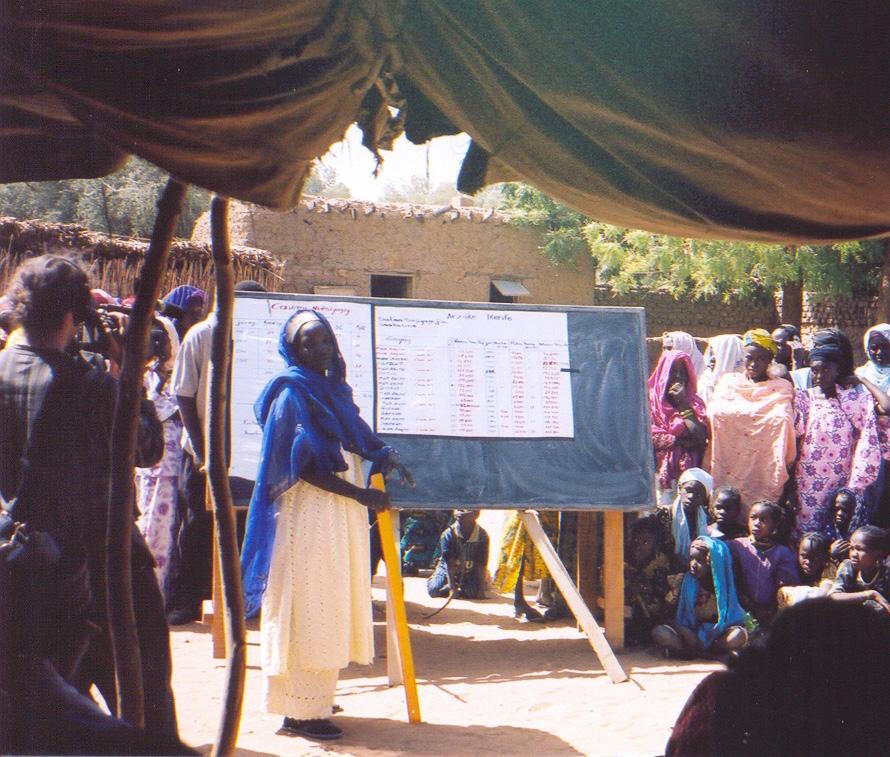
27 The COFA in the World of the Francophonie
It is essential to simultaneously defend the right to education, the right of adults to education, and the right of adults to education in French.
A SLICE OF HISTORY: 2007
Niger, 2007
THE COFA AS A MODEL
Denis Desgagné believes that what is being done in Ontario is an example of the work that should be done throughout Canada: The COFA and its members have done a lot of thinking about services, the professionalization of the work of educators, the question of developing microcredits, etc. He admits that this is a reflection that stimulates RESDAC’s own thinking. Even though other provinces have centres of expertise, and he cites Manitoba with family literacy, he says that when he looks at all the members and the needs, when he looks to the future, it is to Ontario [that he turns].
He also looks at what the province as a whole has to offer the rest of the Canadian Francophonie. Ontario has developed a reference framework for adult education, its OALCF, which remains a model for the entire pan-Canadian network. And he points out that the COFA is a rich network of very different organizations: colleges, LBS centres, provincial government components. He believes that if RESDAC members had the opportunity to develop their services along the lines of the Ontario model, they would have a much greater impact on literacy levels across Canada. “The COFA is very well organized, very well structured, it has the right tools in place and it meets the needs of Franco-Ontarian learners”.
Ontario learns, the Wynne Report
“If we are to support adults, many of whom make some great sacrifices to continue their education and who are among the most motivated learners, we need to celebrate and support their accomplishments as integral to our own health as a province”.
In 2004, the Review of Adult Education was launched at the request of the Ministries of Education and Training and Colleges and Universities (now the Ministry of Advanced Education and Skills Development). The review resulted in a report entitled “Ontario Learns: Strengthening Our Adult Education System,” released in 2005.
In her introductory message, Kathleen Wynne, who is the Parliamentary Assistant to the Minister of Education for Ontario in 2005, writes: “Adult education programs provide opportunities for adults to follow their educational, career, and personal goals […] If we are to support adults, many of whom make some great sacrifices to continue their education and who are among the most motivated learners, we need to celebrate and support their accomplishments as integral to our own health as a province”.
The report proposes a policy framework and recommends 14 actions to support and improve adult education in Ontario. These actions revolve around the need for further development of the proposed adult education policy framework and definition and its implementation. The report already mentions the potential of information technology to “improve access (to training) [...] and to enable self-study at home”.
28 The COFA in the World of the Francophonie
SLICE OF HISTORY: 2005
The COFA is very well organized, very well structured, it has the right tools in place and it meets the needs of Franco-Ontarian learners
A
THE COFA AS A DRIVING FORCE
For Mona Audet, Executive Director of Pluri-elles (Manitoba) and Chair of the RESDAC Board of Directors, the COFA also plays a driving role thanks to its expertise. She recalls that when the government asked for the creation of LBS Issue Tables, the COFA immediately initiated one in Ontario, with partners from the formal, informal and non-formal sectors. She says that the COFA always responds quickly because it has both the resources and the expertise to do so.
Denis Desgagné also credits the Coalition for its vision. He says he is impressed by its ability to project itself into the future. He mentions its professionalization program, and pilot projects for digital badges and microcredits, which he hopes will become examples for the development of the Canadian network.
Daniel Baril emphasizes that its leadership is not limited to Ontario. Its expertise and reach extend across Canada: “We don’t have a very strong infrastructure across Canada, so when a provincial organization has the skills and the drive to occupy that space, it’s important and beneficial for everyone”.
Canada Life Literacy Innovation Award
The Great-West Life, London Life and Canada Life Literacy Innovation Award honours innovation in the creation and delivery (or design, implementation and delivery) of adult literacy programs or adult-focused family literacy programs run by a community-based organization in Canada. It highlights the positive contribution of these programs to improving the lives of both the individuals involved and the community, and publicizes them as a model for other Canadian organizations.
The COFA received an honourable mention for its innovative role as a Canadian community organization in the field of literacy and basic skills training.
The Ontario Lifelong Learning and Skills Plan
In 2017, as part of the Ontario Lifelong Learning and Skills Plan, the government announced an investment of $185 million over four years in adult essential skills programs. This investment was aimed at improving dual credit learning opportunities for adults, funding pilot technical and workplace skills training programs, and supporting Ontario’s bridge training programs for internationally trained immigrant workers. It included a $25 million increase in LBS program base funding for 2018-2019.
The Ontario Lifelong Learning and Skills Plan had three components:

1. Investment in and improvements to the Adult Education and Essential Skills system;
2. Implementation of new OSAP supports for experienced students seeking post-secondary education;
3. Updating Ontario’s key employment programs that provide support to unemployed, displaced and incumbent workers who require retraining or skills upgrading.
The plan was to contribute to the department’s goal of bringing 1,500 new learners into the program and supporting over 80,000 learners over four years through investments in Adult Essential Skills training.
We don’t have a very strong infrastructure across Canada, so when a provincial organization has the skills and the drive to occupy that space, it’s important and beneficial for everyone
A SLICE OF HISTORY: 2017
A SLICE OF HISTORY: 2015
LIFELONG LEARNING as a Survival Tool

Daniel Baril is the Executive Director of the Institut de coopération pour l’éducation des adultes (ICÉA) based in Montreal, as well as the Chair of the Board of Directors of the UNESCO Institute for Lifelong Learning (UIL).
On the occasion of COFA’s 25th anniversary, we asked him to talk about the concept and integration of lifelong learning in Canada.
According to Daniel Baril, the concept of lifelong learning has been stable in recent years. Its main feature is a broadening of the vision of education and educational policy, and a much more holistic view of learning places and opportunities, whether in schools, the community, peer training or online, self-learning, that is, formal, informal and non-formal education.
This concept is stable, but regularly enriched by advocacy and research on adult education. “However,” says Daniel, “the problem lies in the implementation of this concept. In Canada, as in most countries, the vision of education is first
and foremost school-based and almost strictly focused on the initial training of youth and children, and then, for new generations, on secondary and postsecondary education”.
This limited vision is problematic, and shows that while the idea of lifelong learning is present in speeches and policy, it is not yet implemented in a structured and comprehensive way. According to him, COVID-19 highlighted this limited vision, with governments mainly concerned with supporting school structures, but not so much with the needs of adults. The latter have had to completely reorganize their professional and family
lives, and learn at an accelerated pace to use many new online tools. They have not been the focus of government policy.
TWO NEW CONCEPTS FOR THE LLL
Recently, the concept of lifelong learning has been enriched by two new ideas. UNESCO, but also the educational technology sector, which is very interested in new approaches and in particular in digital approaches, now evokes two systemic concepts related to learning: that of the ecosystem, and that of the flexible pathway.
While the idea of lifelong learning is present in speeches and policy, it is not yet implemented in a structured and comprehensive way.
30 The COFA in the World of the Francophonie
A learning ecosystem would be made up of places, opportunities or possibilities for each person to learn for the rest of their lives. Learning would no longer be a succession of distinct elements, but rather elements and places interacting in an organic whole.

A flexible learning pathway would be a non-linear pathway of all types of learning, not a series of learning episodes that follow one another.
By rethinking education through these two systemic concepts, Daniel believes, we rethink all the richness, the diversity of places, and the realities of people in learning. These two concepts enrich the concept of lifelong learning while making its implementation more complex.
However, he notes an evolution in the field: certain elements of application or practices are developing, such as national qualification frameworks, which aim to create large frameworks at the country level, by bringing together the different learning places to enable a person to have all his or her achievements recognized. These achievements can be academic or other, such as badges, micro-credentials, etc., and should allow that person to build an electronic portfolio. These systems could encompass the totality of learning opportunities and promote the continuity of learning paths.
These two concepts of ecosystem and flexible learning pathways were officially integrated into the definition of LLL during the last UNESCO international conference in 2022 1. But, warns Daniel, we are still far from the creation and implementation of new generation policies in line with these learning ecosystems and the idea of flexible pathways.
AN ADDITIONAL DIMENSION IN CONNECTION WITH THE GLOBAL CRISES
For Daniel, the passage into the XXIst century has brought new challenges to education. He recalls that in the 70’s, a great effort was made regarding the schooling of populations. Today, what strikes him is the extreme extent of the requirements of competences expected and imposed on a person. Basic schooling is now only a minimal base, to which many skills must be added:
• Managing personal finances
• Managing your health and mental health
• Digital skills, etc.
The pandemic has collapsed these issues because each person has had to acquire certain skills at great speed, particularly in order to be able to accompany their family through the crisis. In addition, he notes that, in general, expectations of each individual are increasing.
To this need to develop skills throughout life in connection with professional and social life, a dramatic layer is added: that of all the crises of the XXIst century, climate crisis, migratory, economic, social, etc. Daniel evokes the idea of the four main pillars of learning (learning, learning to do, learning to be, learning to live together) developed by the UN in the mid-90s. Today, a 5th pillar has been added, that of learning to become.
This last pillar expresses, according to him, the immense educational challenge of our time, characterized by a multitude of crises experienced by the world population: crisis of democracies, wars, information warfare, false information, etc., and they are caused by what we are. “In learning to become, humanity must learn to change itself, to become another humanity,” he explains. And this additional dimension of LLL is no longer an end in itself, but the answer to a necessity, “the need to evolve in order to survive as humanity,” Daniel concludes. Nothing less.
31 The COFA in the World of the Francophonie
A flexible learning pathway would be a non-linear pathway of all types of learning, not a series of learning episodes that follow one another.
1
The 7th UNESCO International Conference on Adult Education was held in June 2022 in Marrakech, Morocco: https://www.uil.unesco.org/en/seventh-international-conference-adult-education
CANADA AND LIFELONG LEARNING
According to him, Canada has the flaws of its qualities: the Canadian constitution guarantees a decentralized system and a jurisdiction of education entrusted to the provinces. This decentralization prevents it from having an overall vision of educational issues and challenges: each province has its own organization, its own agencies, with English-speaking and French-speaking provinces having different agencies, etc. There is no pan-Canadian cross-sectoral organization, no federal focal point that would allow for a 360-degree vision of LLL in Canada. As a result, he laments, the lack of a unifying pole, a panoramic vision, does not help in understanding Canada’s issues. Visions of LLL remain fragmented, with each province responsible for imagining and implementing its own.
At his level, in his practice, Daniel also regrets the lack of representatives. If he wants to discuss adult education with government authorities, he has to discuss with each province, with the Council of Ministers of Education, and at the federal level, with Global Affairs Canada (for what comes under UNESCO) and Employment and Social Development Canada. This fragmentation explains the lack of leadership at the Canadian and governmental levels.
BUILDING A CANADIAN PERSPECTIVE
Over the past 25 years, he has been involved in many discussions across Canada about how to create a space for consensus and discussion to build a Canadian perspective on lifelong learning, without results. Most recently, the ICÉA was able to bring together different organizations and government representatives in preparation for the June 2022 UNESCO conference, but this structure disappeared with the end of the conference.
At the policy level, Daniel believes that Canada is in step with the larger trends, with policies that are very focused on literacy or workforce training, for example, to address specific needs related to labour shortages, or to improve digital skills. However, no province, let alone Canada, has a true adult education policy, let alone a lifelong learning policy.
However, he notes that services are being developed in some provinces, such as Saskatchewan, which has consolidated its services into one agency with centralized online resources.
Over the past 25 years, Daniel has seen that policies related to lifelong learning have been mostly limited to workforce training, or even to some of the objectives of workforce training. What’s
amazing, thinks Daniel, is that provincial governments expect their populations to be self-sufficient and competent in a range of areas: they want consumers who are savvy, sensitive to reducing their environmental impacts, have the skills to work with each other, that can use social media in a meaningful way, and so on. “But the widespread problem,” he says, “is that they don’t deliver the goods. They make demands on their people, but leave them to their own devices”.
LITTLE SUPPORT AND FEW TOOLS
The pandemic is a striking example of what parents of school children have had to take on, says Daniel, from helping with homework to working as a substitute teacher. On the other hand, Zoom, Teams and Google Meet have had to be learned at a rapid pace and have now become everyday tools. Daniel refers to the last 24 months as a “black hole”. He feels that no one recognizes that the skills of adults mitigated the impact of the pandemic, nor the willingness and effort of those who did not have those skills to go out and get them. This, he says, is an example of the direct contribution of lifelong learning. This lack of support is like a company not caring about developing the skills of its employees, while at the same time setting goals for new markets and new services.
In his opinion, the main shortcoming is the lack of vision on the part of governments: “We respond to labour shortages, we respond to the challenges of the job market, we play the role of firefighters, but the real challenge is to build a new humanity for the future, or, for Canada, to build the citizen of the 21st century. There is a huge gap in this area,” says Daniel.
For him, the concept of lifelong learning risks remaining a rather hollow slogan, which suggests that everything is in place for it to come to life, while the States have not yet arrived in the XXIst century as far as education is concerned: “We are still in a Taylorian-type system, worthy of the XIXth century,” he insists. “This is a huge challenge for the provinces.”
However, he tries to be optimistic and reminds us that all the tools exist, they have been conceptualized, and the systems and solutions that should be put in place also exist. “Now,” he says, “all that remains is to completely rethink the very notion of education: we are not talking here about the school education of young people in initial training, but rather all the resources available to acquire the knowledge and skills required, today, to live in a modern society.”
32 The COFA in the World of the Francophonie
For Daniel Baril, the concepts of Lifelong Learning are well understood and integrated, but it is the implementation of these concepts at the policy and service level that is problematic.
COFA members
L’ABC COMMUNAUTAIRE
The ABC Communautaire is a Francophone adult education centre in the Niagara region offering learning opportunities in the classroom, online or in the workplace. It provides the community with training that will promote personal development to improve communication, teamwork, stress management, organizational skills or autonomy, among others.
Since its inception in 1987, ABC Communautaire has been socially engaged, establishing new partnerships, conducting project evaluations, while continuing to create a unique model of adult education focused on improving the skills of Francophones seeking employment. In 2023, the partnerships have expanded as have the courses offered. The Centre serves a diverse clientele with often very specific needs.
French and computer courses remain the most popular, but ABC Communautaire also offers several basic courses in computer science, mathematics, French for communication, reading, comprehension, writing, and for the development of autonomy, in addition to online courses offered in partnership with the F@D.
ABC Communautaire
50, Dorothy Street, Welland, ON L3B 3V7 905 788-3711
www.abccommunautaire.ca
DIRECTOR
Linda Johnston linda@abc.communautaire.ca
EDUCATORS
Nathalie Carrière nathalie@abccommunautaire.ca
Claire Guignard claire@abccommunautaire.ca
ALPHA-TORONTO
Alpha-Toronto was born in 1988, founded by two prominent members of Toronto’s Francophone community who were very active in the cultural and artistic fields. The Centre responded to the need of Toronto’s large Francophone community for a place that would offer academic upgrading and retraining, with the objective of returning to school or becoming more employable. Throughout the years 2000, Alpha-Toronto has had agreements with Collège Boréal to offer the Ontario Basic Skills program and the ACE certificate, which is recognized by Ontario colleges as the equivalent of Grade 12, with several college preparatory courses. The majority of Alpha-Toronto’s clientele is made up of people who come to take the LBS program in order to be integrated at Collège Boréal, where they can then obtain an Academic career entrance (ACE) and continue their studies if they wish. The learners who attend the Centre aim for short or long term employability, continuing education or autonomy. The team is proud to offer them personalized and motivating supervision and follow-up, as well as a positive atmosphere of encouragement so that each and every one of them can achieve their goals.
Alpha-Toronto
302-90, Richmond E. Street, Toronto, ON M5C 1P1 416 542-1574
www.alpha-toronto.ca
DIRECTOR
Renaud Saint-Cyr alphatoronto@bellnet.ca
33 cofa members
ALPHA EN PARTAGE FROM EAST SUBDURY
The Centre Alpha en Partage was born to meet the needs of adults in the community who were seeking to achieve their educational and employment goals. Our learners are primarily referred to us by Ontario Works. Our most popular courses are English and Computer Literacy, but we are particularly proud to have established additional programming in Health and Safety. We offer certain certifications that are prerequisites for employment.
Alpha en Partage from east Sudbury
22, Ste-Anne Street, Suite 205, St-Charles, ON P0M 2W0 705 867-2220
www.alphaenpartage.ca
DIRECTOR
Katy Marier katymarier@msn.com
PROGRAM COORDINATOR
Roxanne Lemieux alphaenpartage@outlook.com
CARREFOUR DE FORMATION POUR ADULTES
In 1988, the Carrefour de formation pour adultes was born out of the need to help community members who needed to improve their LBS levels. Today, the average age of the clientele is 45 years and older, but the Centre also offers support to individuals who want to obtain their high school diploma. The most popular courses are those related to the Microsoft Office suite, as well as courses on Internet security, Facebook and the use of an IPad. The Centre is proud to have set up a course on horticulture for people wishing to work in a garden centre, with an instructor who is herself a horticulturist. At the end of the course, she encouraged her learners to come and practice on her land. The course was a great success and will be repeated in 2023, with the partnership of a garden centre.
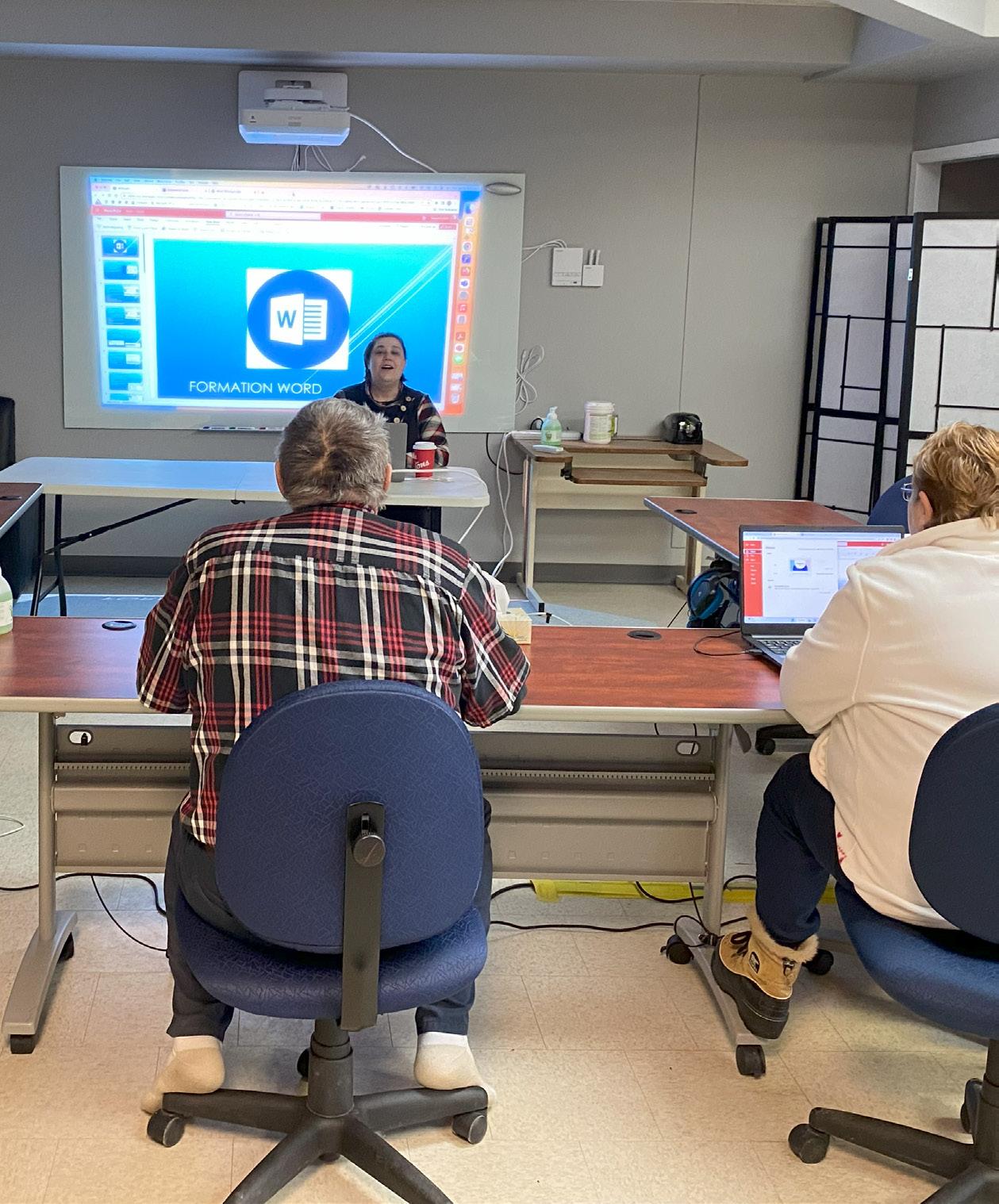
Carrefour de formation pour adultes
431 Main Street, Unit E, Box 419, Alexandria, ON K0C 1A0 613 525-4194
www.carrefourformation.com
DIRECTOR
Linda Hamelin l.hamelin@carrefourformation.com
ELLIOT LAKE LEARNING CENTRE
The Elliot Lake Learning Centre is one of three centres of the North Shore Literacy Council, a non-profit organization dedicated to supporting communities in achieving their learning goals. The Learning Centre has been operating since 1996 in and around the Elliot Lake area. Elliot Lake has always had a large francophone community and the Centre primarily serves the seniors of the community in improving their French reading and writing skills. The Elliot Lake Learning Centre team is pleased to have recently implemented a beginner’s French program, thanks to several private donations. This program has been requested by the community for several years and has finally been implemented.
Elliot Lake Learning Centre
10, Paris Drive, Unit 10, Elliot Lake, ON P5A 2L9 705 578-3200
www.nclc.ca
DIRECTOR
Amanda Paufler apaufler@nclc.ca
EDUCATORS
Ginette Tassé gtasse@nclc.ca
Diane Savard dsavard@nclc.ca
34 cofa members
Photo: Centre de formation Cochrane-Iroquois Falls (Cochrane-Iroquois Falls Training Centre)
CENTRE DE FORMATION COCHRANE-IROQUOIS FALLS
The Centre de formation Cochrane-Iroquois Falls was created in 1993 to meet the training needs of the Francophone community in the region.
Its clientele is made up of people who come to improve their skills in literacy, technology, first aid, to get a better job, or to obtain their Ontario Secondary School Diploma.
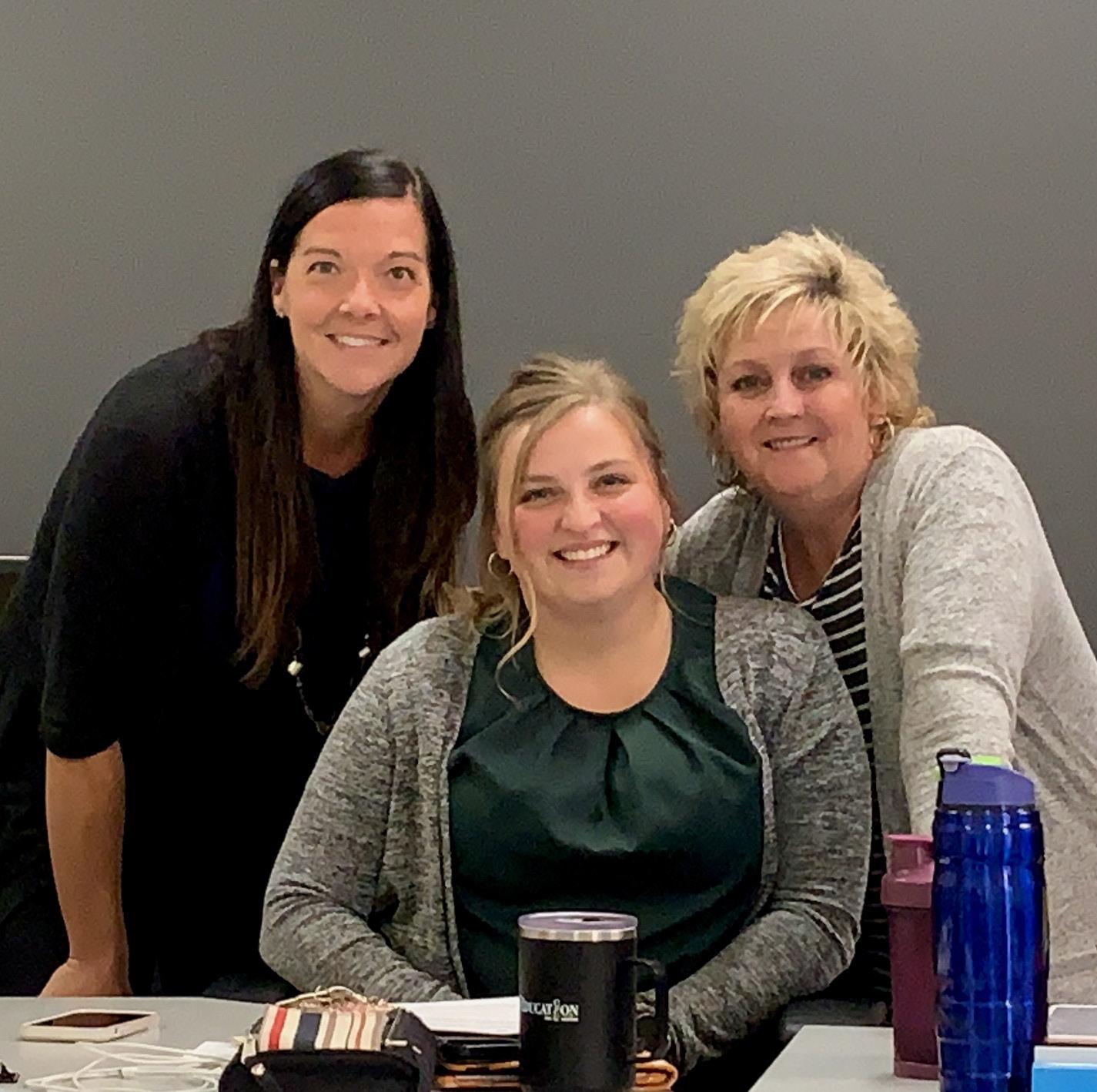
The most popular course is the one on first aid, because you need to update your knowledge regularly. The Centre’s team is developing an offering in partnership with the ministry that they are really proud of: once a month, learners who are embarking on entrepreneurship will be able to follow a detailed plan for their market-driven project that will touch on budgeting, setting up a Facebook page, a website, and Hootsuit and Canva tools for marketing.
Centre de formation Cochrane-Iroquois Falls
B-129, Sixth Avenue, Cochrane, ON P0L 1C0 705 272-3513
www.votrecentre.ca
EXECUTIVE DIRECTOR
Renelle Bélisle r.belisle@votrecentre.ca
EDUCATOR
Samantha Mills s.mills@votrecentre.ca
CENTRE DE FORMATION DE HEARST
The Centre de formation de Hearst is a non-profit organization that aims to educate and make literate Francophone adults in the Hearst region. It offers free training services in literacy, numeracy and computer skills, with courses adapted to each individual’s needs.
The Centre is attended by nearly 80 learners each year. The majority of the clientele is 45 years of age and older, who come to the Centre to improve their digital technology skills. The most successful courses are those that focus on the use of tablets, smartphones and computers.
Centre de formation de Hearst
62B, 9th Street, Box 2948, Hearst, ON P0L 1N0 705 362-4448 and 252, King Street, Apt. 2, Mattice, ON P0L 1T0 705 362-4448
www.formationhearst.ca
DIRECTOR
Marie-Claude Rodrigue mc.rodrigue@formationhearst.ca
EDUCATORS
Mélanie Collin m.collin@formationhearst.ca
Christiane Lemieux c.lemieux@formationhearst.ca
CENTRE DE FORMATION DES ADULTES DE KIRKLAND LAKE
The Centre de formation des adultes (CFA) de Kirkland Lake is a non-profit organization whose mission is to help members of its community improve their skills so that they can fully develop their language skills, access employment and play an active role in their community. The CFA offers LBS training (reading, writing, mathematics and computer skills) to enable learners who attend the centre to improve their French, obtain their High School Diploma, update their computer skills, find a job, change jobs or obtain a promotion at work. Learning is done at the learner’s pace and is adapted to their needs.
Centre de Formation des Adultes de Kirkland Lake
4, Al Wende Avenue, 2nd floor, Kirkland Lake, ON P2N 3J1 705 567-3229
www.cfakirklandlake.wixsite.com
DIRECTOR
Linda Garant Dufour cfakirklandlake@gmail.com
35 cofa members
Photo: Centre de formation de Hearst (Hearst Training Centre)
CENTRE DE FORMATION ET DE PERFECTIONNEMENT OF GREATER SUDBURY
The Centre de formation et de perfectionnement of Greater Sudbury was created to meet the need for LBS training in French. As a result of the amalgamation of the smaller surrounding communities, the Centre now serves the Greater Sudbury area, with a clientele composed primarily of Francophone newcomers. Its most popular class is basic computer training. The team is proud to have joined the Centre de santé communautaire of Greater Sudbury in the spring of 2022. This centre offers French primary care, manages the Sudbury Homeless Network and welcomes the Sudbury Francophone community year-round. The training centre can now offer its services to a larger number of clients.
Centre de formation et de perfectionnement of Greater Sudbury
19, Frood Road, Sudbury, ON P3C 4Y9 705 688-0005
www.formationsudbury.ca
COORDINATOR
Serge Ducharme sducharme@santesudbury.ca
EDUCATORS
Suzette Gauthier sgauthier@santesudbury.ca
Anne-Marie Sylvain asylvain@santesudbury.ca
Josée Blake jblake@santesudbury.ca
MANITOUWADGE LEARNING CENTRE
The Manitouwadge Learning Centre offers LBS services, upgrading courses to complete Grade 12 Secondary School diploma or a General Education Development (GED) certificate, employment access courses (computer skills, resume writing, language development, etc.), personal development courses (budgeting, form filling, etc.) and the opportunity to complete a post-secondary education program at an institution of the learner’s choice.
Centre de formation Manitouwadge Learning Centre
3, Huron Walk, Hallmark Square Unit 11, Box 467, Manitouwadge, ON P0T 2C0 807 826-4362
DIRECTOR
Ken MacEachern manitouwadgelearningcentre@gmail.com
CENTRE DE FORMATION POUR ADULTES DE GREENSTONE (CFAG)
The Centre de Formation pour Adultes de Greenstone (CFAG) was established in August 1986. It responded to the demand for French and office automation courses. Today, the Centre’s most popular courses are those related to computers and office automation, particularly those that involve the use of computers, tablets and cell phones. The team is particularly proud of its brand new website and the training courses available through Zoom.
Centre de Formation pour Adultes de Greenstone (CFAG)
401, Main Street, Box 1268 Geraldton, ON 0T 1M0 807 854-0398
www.cfag.ca
DIRECTOR
France Martineau cfag@bellnet.ca
CENTRE D’ÉDUCATION ET DE FORMATION POUR ADULTES (CÉFA)
The Centre d’éducation et de formation pour adultes (CÉFA) was founded in 1991 in Sault Ste. Marie. Since its inception, it has offered free training to the francophone community to achieve personal and professional goals. The CÉFA is a place of training and cultural, social and economic development. Today, it still offers training to Francophones and Francophiles, with language development or learning French as a second language, GED preparation and various workshops. The CÉFA also offers customized training to employers who are mandated or who wish to offer services in French. The courses offered are: Computer skills, GED test preparation, French as a second language, communication and interpersonal skills, and a new 15-week program for people who dream of creating their own business: PIE (Entrepreneurship). Courses are offered in class or online with F@D.
Centre d’éducation et de formation pour adultes (CÉFA)
145, McNabb Street, Sault Ste. Marie, ON P6B 1Y2 705 946-1565
info@cefassm.com
www.cefassm.com
DIRECTOR
Susie Lauzon directeur@cefassm.com
EDUCATOR
Sophie Kozak formatrice3@cefassm.com
36 cofa members
CENTRE DE FORMATION POUR ADULTES FRANCOPHONES DE TIMMINS
The ALPHA Centre was officially born in March 1988, but had already been operating for two years. It responded to a need in the Francophone community, which had no LBS resources, even though it is a large linguistic group. Operating two evenings a week in the ACFO premises, the services then developed and attracted a growing clientele.
The Centre needed more space and an office of its own, so it moved to a new location at the corner of Maple and Sixth Streets, an address it maintained for 13 years. In June 2001, Centre ALPHA, now known as the Centre de formation pour adultes francophones à Timmins (CFAF), formed a partnership with Collège Boréal. It has kept the same mission, to offer basic training to Francophone adults in Timmins, to be a leader in the LBS milieu in its community and to offer quality services that meet the needs of its clientele.
The Centre can always count on many volunteers to support its mission. Today, it not only offers learning in various fields, but also helps learners develop their confidence and self-esteem, for example, by guiding them in understanding digital and office tools. The Centre de formation pour adultes francophones à Timmins (CFAF) reaches out and supports the community through each person it serves.
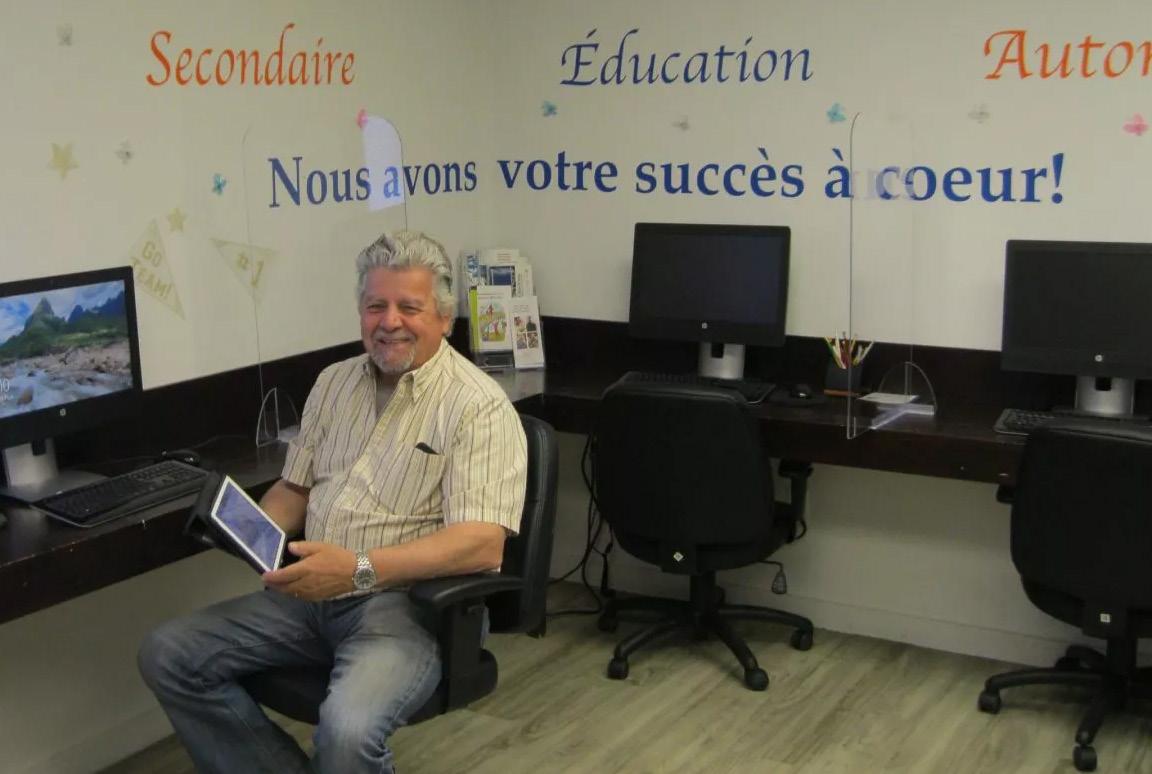
Centre de formation pour adultes francophones de Timmins
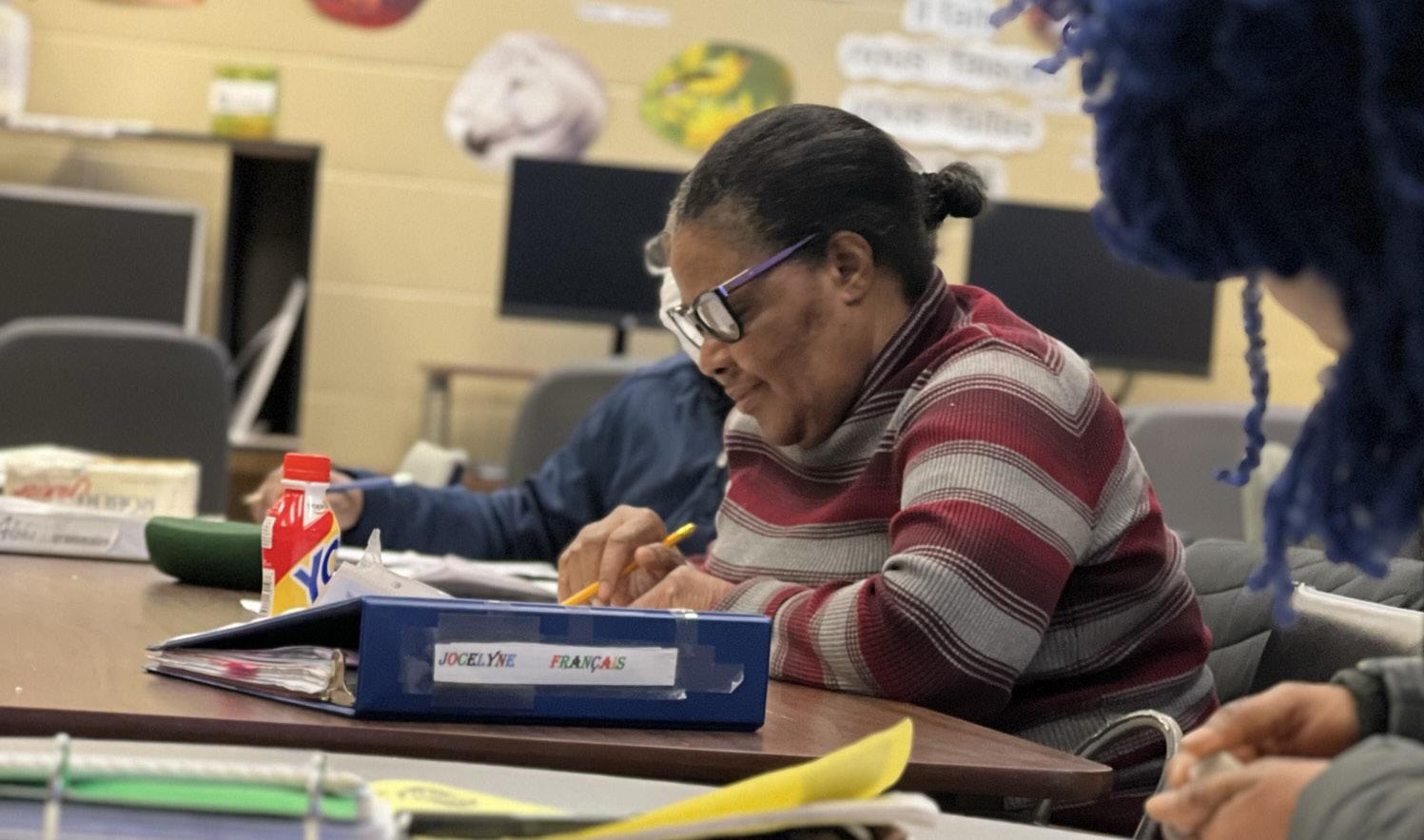
45 Spruce St S., Timmins, ON P4N 2M5
705 267-3222
www.cfaftimmins.com
DIRECTOR
Mélanie Lecerf mlecerf@apprendrecfaf.ca
CENTRE “MOI J’APPRENDS”
In May 1987, the Centre culturel La Sainte-Famille of Rockland submitted a request to the Ministry of Citizenship and Cultural Affairs for funding to set up a community literacy program to serve the adult Francophone population of Russell County. This was the birth of what would become, in 1991, the Centre d’alphabétisation “Moi, j’apprends”.
In 2006, a second site was opened in Ottawa and the following year, it became “Le Centre Moi j’apprends Inc”. In 2011, a third site was added in Cornwall, and in 2014, it was Hawkesbury’s turn to claim an LBS centre. Today, with its four sites, “Moi j’apprends” offers a wide range of courses and programs, from French, math, computer/office courses, personal development, high school diploma preparation, employment preparation, specialized courses for certain types of jobs and French as a second language. Their most popular courses revolve around computer/office skills, but core French courses are also popular, with a demand from newcomers for courses on the specifics of Franco-Ontarian French. The teams at the four centres are very proud of their partnerships which allow them to develop more services for their learners.
Centre “Moi j’apprends” de Rockland (Head Office)
1468, Laurier Street, Suite 100, Rockland, ON K4K 1C7
Rockland : 613 446-5312
Ottawa : 613 748-3879
Cornwall : 613 936-2227
Hawkesbury : 613 632-7979
info@moijapprends.ca
www.moijapprends.ca
EXECUTIVE DIRECTOR
Sylvie Leclair sleclair@moijapprends.ca
37 cofa members
Photo: Centre de formation pour adultes de Greenstone (Greenstone Adults Training Centre)
Photo: Centre “Moi j’apprends”
CENTRE FORMATION PLUS DE CHAPLEAU
The Chapleau Centre Formation Plus has been in existence for 31 years! It was created to respond to various needs expressed by the LBS community, social, economic and cultural skills. The centre offers individualized programs and services by promoting self-direction and self-management to develop the ability of learners to manage their own learning. The centre’s clientele ranges from 20 to 80 years old, and the most popular course is the reading course, which has given rise to a book club. Several other courses are also popular: food handling, first aid, technological skills, sewing and painting. It is the diversity of the offerings that makes the team at the Learning Centre particularly proud.
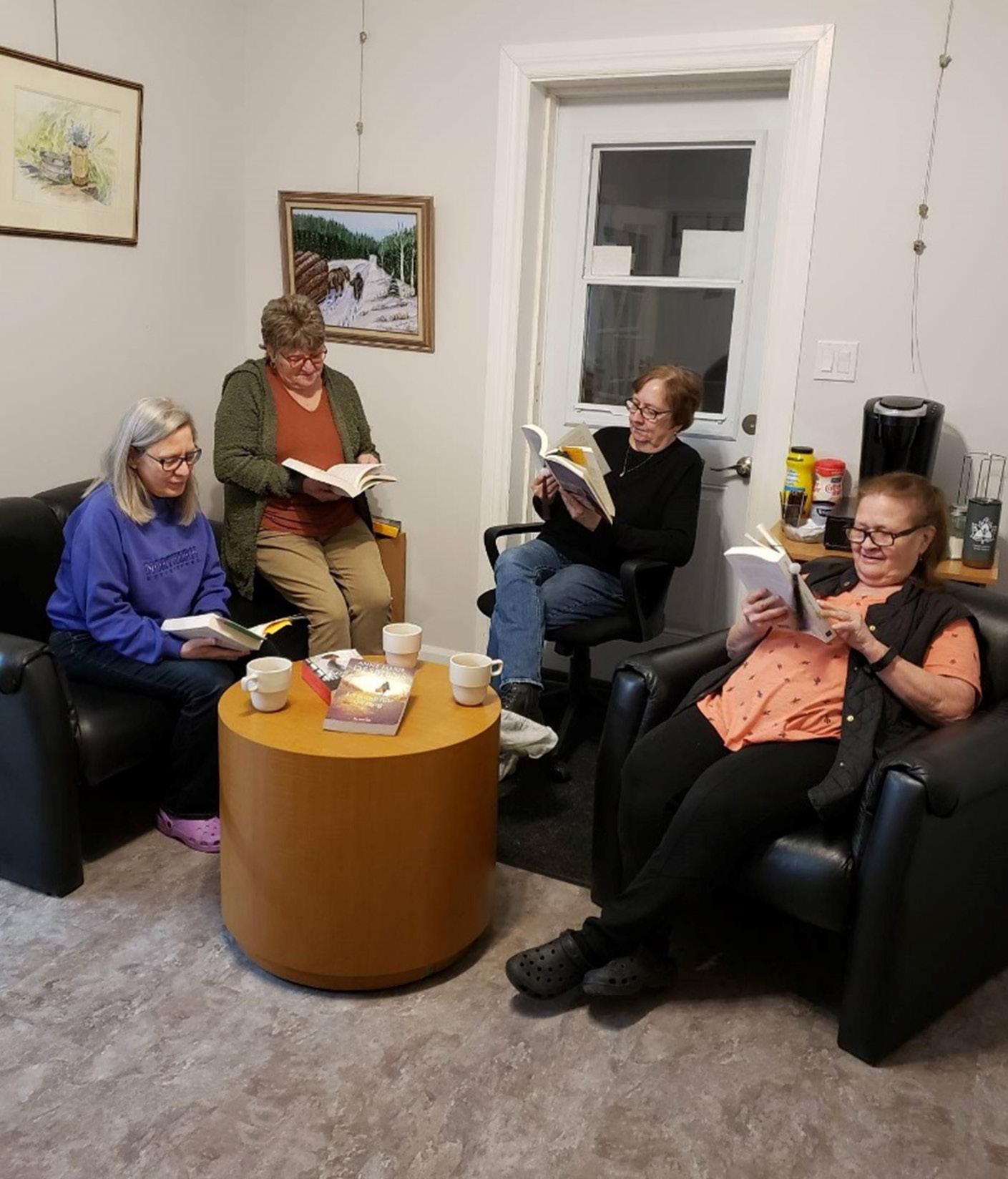
Centre Formation Plus de Chapleau
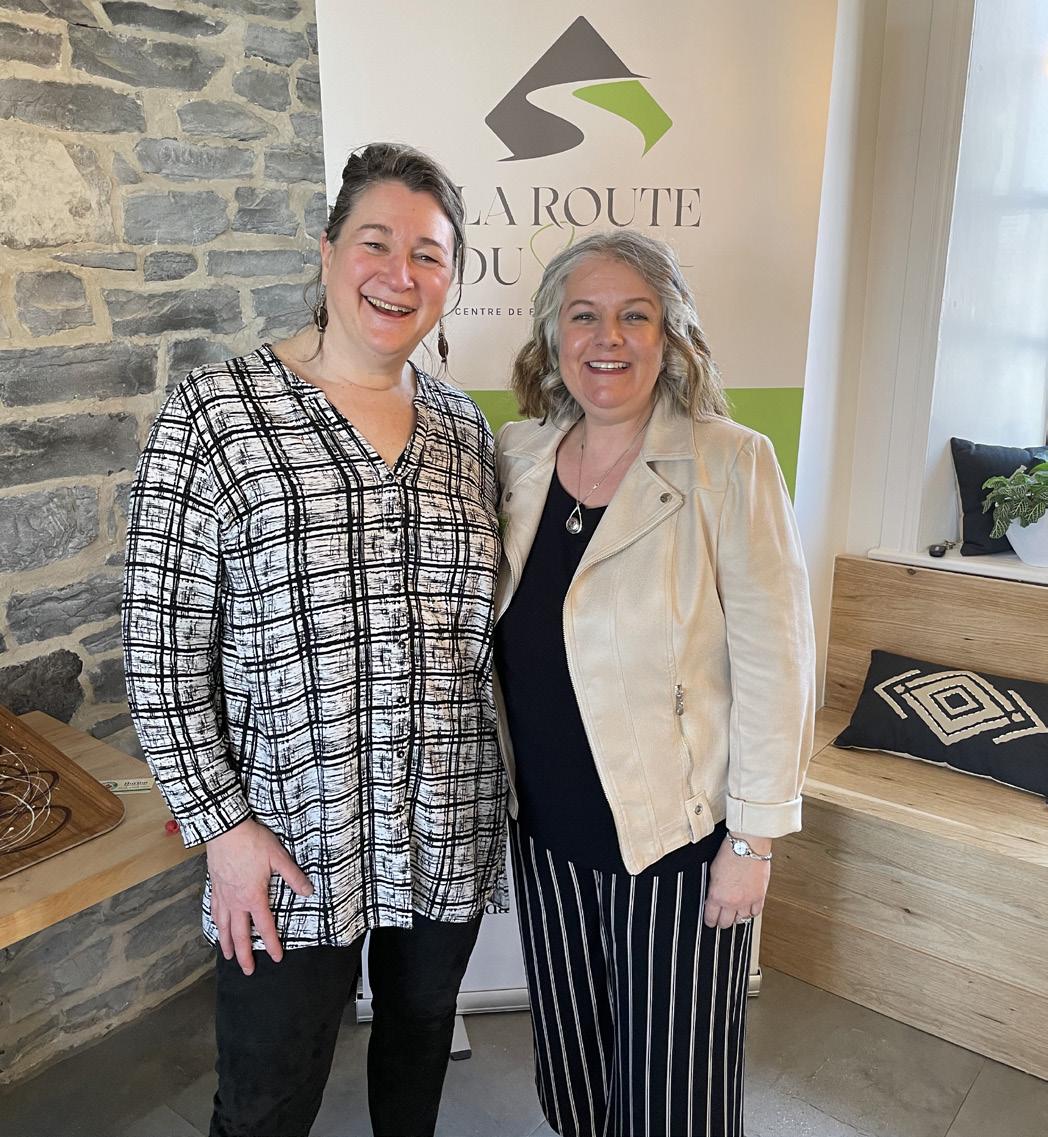
69, Birch Street East, Box 714 Chapleau, ON P0M 1K0 705 864-2763
www.quatrain.org/fplus
DIRECTOR
Luc Tessier formationplus@vianet.ca
EDUCATORS
Andréa Synnett asynnett.fplus@gmail.com
Monique O’Hearn mohearn.fplus@gmail.com
LA ROUTE DU SAVOIR
La Route du Savoir adult education centre was founded in April 1992. Its mission is to increase the quality of personal and professional life of the people who come through its doors. The Centre develops and offers training on various subjects to increase the autonomy of learners. Basic training is offered to people who wish to improve their knowledge of French, mathematics and computers. The Centre’s clientele is varied, but they all have in common that they want to improve their current or future employment conditions. Some people come for help to improve their French or computer skills, others come for a high school diploma equivalence, and still others want to improve their social autonomy. The French refresher courses are by far the most popular, both oral and written, and to a lesser extent, the digital skills courses. The team is particularly proud of its new workshop on personal finances (budgeting, credit cards, etc.) and its workshop on memory.
La Route du Savoir
711, Dalton Avenue, Suite 187, Kingston, ON K7M 8N6 613 544-7447
www.laroutedusavoir.org
DIRECTOR
Chantal Hudon chantalhudon@laroutedusavoir.org
38 cofa members
Photo: Centre Formation Plus de Chapleau (Chapleau Training Centre)
Photo: La Route du Savoir (Adult Education Centre)
LE CENTRE DE FORMATION DU NIPISSING
The centre de formation du Nipissing has been providing LBS training in North Bay since 1989 and at its permanent satellite centre in Sturgeon Falls since 1992. The first steps towards a literacy program were taken by an ACAF-Nipissing committee in 1987 and a 1990 survey revealed that 39.5% of Francophone adults in Nipissing were “functionally illiterate” and 8% were truly illiterate.
Today, the team at the Nipissing Training Centre offers LBS workshops to a wide variety of clients. The trainings aim to allow adults from the Francophone community to take their place in the social, cultural and economic life. But also to promote their personal development, facilitate their integration into the job market and in general, improve their quality of life.
The popularity of the training offered depends on the regions served: in the West Nipissing region, clients have a preference for training related to digital technologies such as the Microsoft suite, or the use of tablets and smart phones. In the North Bay area, the most popular training is oral French development, in part because the centre has partnered with organizations in the community that want to provide training to employees serving the francophone community, such as the Réseau de soins palliatifs du Moyen-Nord and Community Living of North Bay.
The team is particularly proud of the reopening of the CFN offices and its bookstore, Le Café-Boutique ÉduPlaisir in Sturgeon Falls. COVID-19 had forced their closure in 2020, but for more than a year now, training sessions have resumed in person and the Café-Boutique ÉduPlaisir promotes the Francophonie on a daily basis by offering the love of reading and contributes to keeping the Francophone culture alive in Ontario.
Le centre de formation du Nipissing
630, Cassells Street, North Bay, ON P1B 4A2 705 472-6673
and 219, King Street, Sturgeon Falls, ON P2B 1S1 705 707-1007
www.formationnipissing.ca
DIRECTOR
Guylaine Pagé-Hammond guylaineph@formationnipissing.ca
EDUCATORS
Yousri Chakroun yousrich@formationnipissing.ca
Monique Savage moniquesavage@formationnipissing.ca
LE COLLÈGE DU SAVOIR (THE ADULT ALTERNATIVE EDUCATION CENTRE IN BRAMPTON)
Le Collège du Savoir has been in existence since 1992 in Brampton. It was born out of the need to build a literate and culturally healthy Francophone community. Its mission is to recognize and protect the rights of illiterate people by raising awareness of the problem of illiteracy among Franco-Ontarians, and to have education and popular literacy recognized as universal democratic rights.
The centre’s clientele is primarily French-speaking, low-literacy and non-literate adults 19 and over. This is why the GED program is the most popular course, as most of the people who take it are newly arrived from developing countries or war zones.
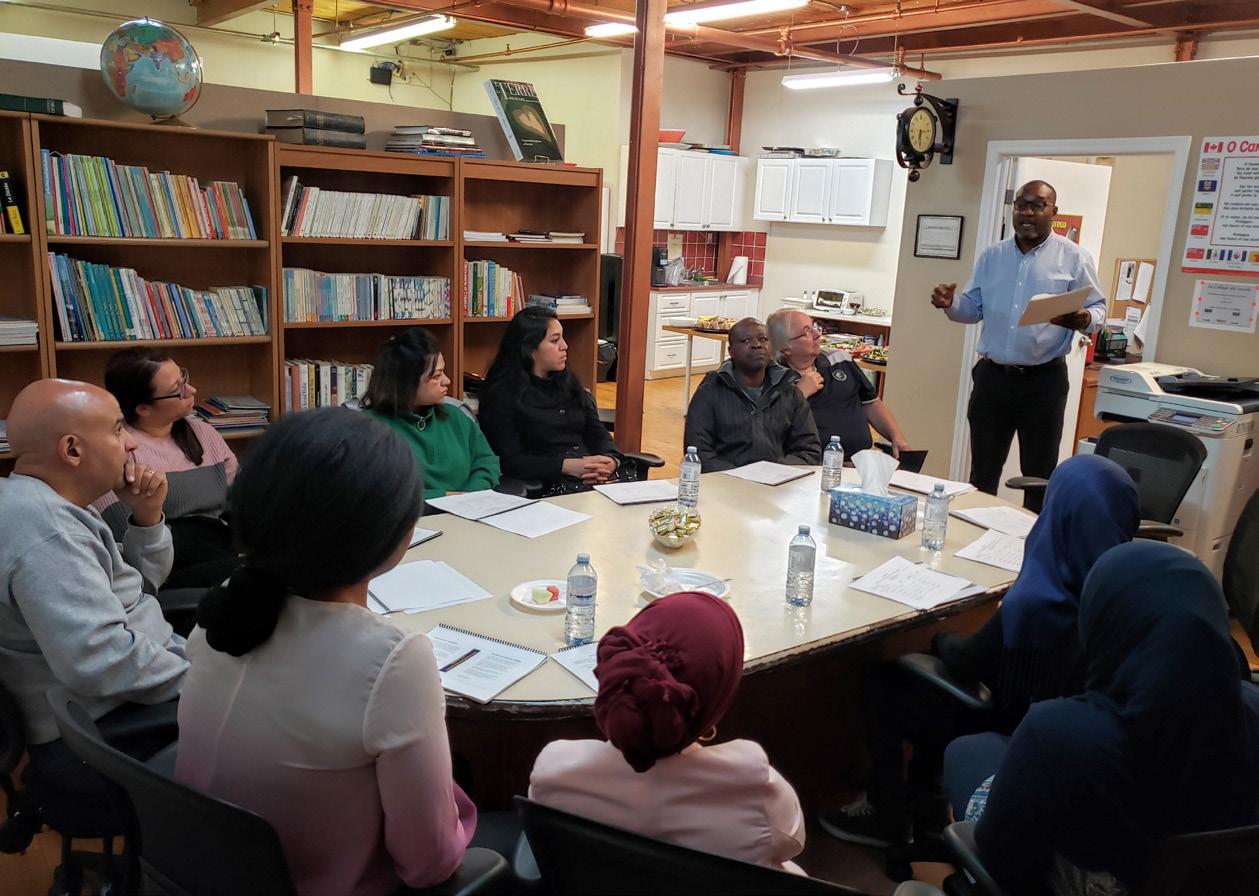
The team is very proud of the “I feel; therefore I am” program, a mental health support program developed at the beginning of the pandemic in 2020. This program allows learners to express themselves in workshops and find mental health support if they need it. The team realized that this program was very helpful in reducing absenteeism and dropout rates.
Le Collège du Savoir
2 County Court Blvd. County Court, Suite 335, Brampton, ON L6W 3W8 905 457-7884
info@lecollegedusavoir.com
www.lecollegedusavoir.com
GENERAL MANAGER
Saint-Éloi Tshilumba sainteloi@lecollegedusavoir.com
39 cofa members
Photo: Le Collège du Savoir (Adult Alternative Education Centre in Brampton)
NOVOCENTRE
Novocentre is an LBS centre in Northwestern Ontario that provides continuing education services and responds to the training and employment preparation needs in its territory. It provides support to individuals who wish to improve the skills necessary for personal development, further education and employment goals. The Centre offers the following programs: French as a Second Language (FSL) courses, Basic Training Programs (BTP), DELF-DALF test preparation, TEF Canada Centre. Its clientele is mainly composed of professionals who want to reach a better level of French. Novocentre is also an accredited centre for the administration of the Test d’évaluation du Français (TEF), which is required as part of the application for permanent residence and Canadian citizenship.
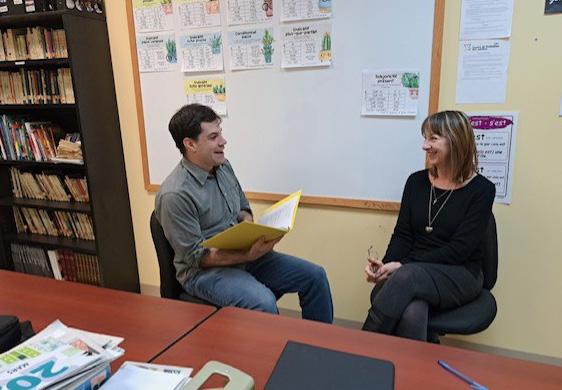
Novocentre
234 Van Norman Street, Thunder Bay, ON P7A 4B8 807 684-1960
www.novocentre.com
DIRECTOR
Denis Malette dg@novocentre.com
EDUCATORS
Mourad Beldjoud m_beldjoud@yahoo.ca
Rachelle Mayer rmayer@csdcab.on.ca
Renée Garceau reneegarceau@icloud.com
Colette Pellerin cpellerin@tbaytel.net
Aristide Mokale mokalekal@novocentre.com
Jean-Yves Bernard j.yvs.bernard@novocentre.com
Cédrick Jeanpierre cedrick.jeanpierre@yahoo.com
Lina Mayer tech@novocentre.com
Audrey Debruyne audreydebruyne@yahoo.fr
Madeleine Bernard madeleine_bernard@novocentre.com
LE SERVICE DE FORMATION AUX ADULTES - LA CLÉ
In 1996, the Centre d’activités françaises, ACFO-Huronie and Radio-Huronie CFRH FM Communautaire formed La Clé d’la Baie en Huronie (“La Clé”), a Francophone cultural association that pools its resources and administration to increase the effectiveness of organizations in providing services in French in Simcoe County. In 2006, the Centre multiservices francophone du comté de Simcoe joined with a health and social services mandate. Since its inception, La Clé has been involved in the promotion, development and needs of the francophone community in Simcoe County. It offers a full range of services to actively contribute to the growth, success and recognition of the francophone community in Simcoe County.
The Barrie office opened in 2010 and the Penetanguishene office opened three years later. The clientele at both centres is mostly professionals, people who have jobs but might want to change or improve their prospects, or help their children with their homework. Many are Francophones who have lost some of their French as a result of being married to an Anglophone and who wish to upgrade their French for professional purposes. The team is excited about the new community partnerships and focus groups that have been established to promote the LBS activities offered by « La Clé ».
Le service de formation aux adultes – La Clé
2, Marsellus Drive, Suite 5, Barrie, ON L4N 0Y4 705 725-9755
www.lacle.ca
DIRECTOR
Carl Monette directioncommunautaire@lacle.ca
EDUCATOR
Marie-Elise Perron meperron@lacle.ca
Le service de formation aux adultes – La Clé
63, Main Street, Box 5099, Penetanguishene, ON L9M 2G3 705 549-3116
EDUCATOR
Esther Tremblay afbpenetang@lacle.ca
40 cofa members
Photo: Le service de formation aux adultes - La Clé (La Clé Adult Education Service)
CENTRE D’ÉDUCATION ALTERNATIVE
POUR LE SCS DU DISTRICT DES GRANDES RIVIÈRES
The Centre d’éducation alternative for the Catholic School Board of the Grandes Rivières District offers LBS training but also credit courses for the grade 12 diploma, which allows learners who complete their LBS training to continue their high school education under one roof. One of the team’s proudest achievements is to see the progress and success of learners who often came in hesitant and fearful.
Centre d’éducation alternative for the CSC du district des Grandes-Rivières (the Catholic School Board of the Grandes Rivières District) in Timmins.
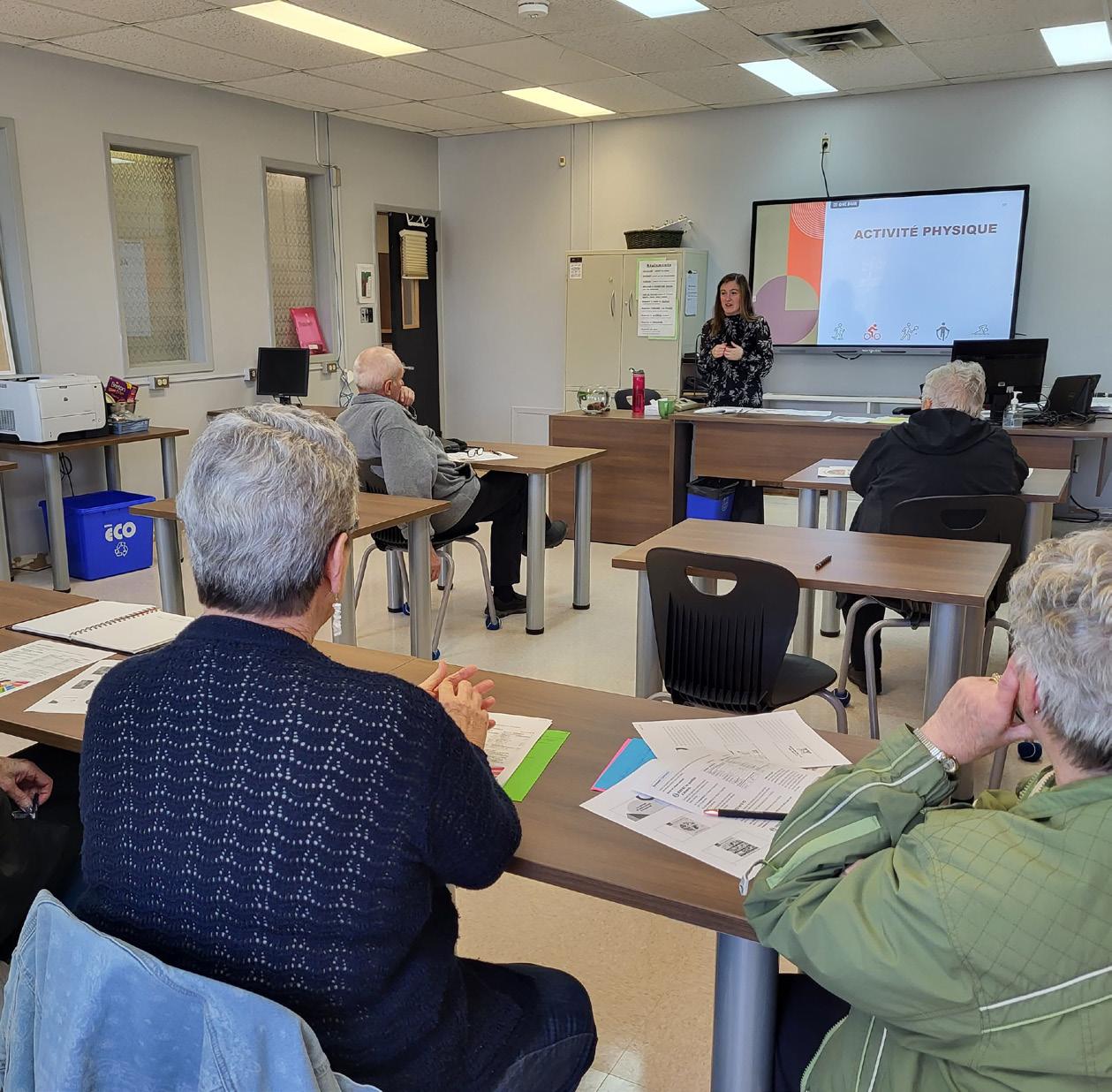
73, Queen Street, Kapuskasing, ON P5N 1H4 705 337-6035
www.cscdgr.education
PROGRAM COORDINATOR
Daniel Girouard daniel.girouard@cscdgr.education
EDUCATORS
Lise Chabot lise.chabot@cscdgr.education
Nancy Ethier nancy.ethier@cscdgr.education
CENTRE D’ÉDUCATION DES ADULTES DE NEW LISKEARD
The Centre d’éducation des adultes (CÉA) de New Liskeard is an alternative high school of the Conseil scolaire catholique du district des Grandes-Rivières and a Literacy and Basic Skills (LBS) Centre that offers a variety of French language training opportunities in a stimulating learning environment focused on mutual support, communication and personal success. The Centre offers credit courses leading to the OSSD (Ontario Secondary School Diploma) and training workshops that address the six key competencies of the OALC (Ontario Adult Literacy Curriculum) framework, both in class and online.
The Adult Education Centre opened in 1992 in Cobalt, Ontario, to provide a place of learning for people who had been affected by the closure of mines in the area. It was the first to offer a computer-based learning program called Pathfinder. Between 2002 and 2007, this learning program was replaced by the Nautikos software. Approximately 200 adults attend training, workshops and courses to improve their literacy, numeracy and computer skills. In 2023, the CÉA is a hub for Francophone learners and a key training site for the Francophone community. The Centre continues to offer courses, both in-person and online, for those who wish to obtain their Ontario Secondary School Diploma and LBS training.
The main clientele is made up of French-speaking adults who wish to improve their skills in order to obtain a job, an Ontario
Secondary School Diploma, to do volunteer work or to be more independent. The most popular courses with the mature population are those related to computers, but the centre serves a wide variety of clients who are also attracted to French courses. The technology helpdesk is one of the Centre’s great successes. But what the team is most proud of is its “Les experts” series. Experts from various fields are regularly invited to present their services and programs, while giving a workshop full of tips for learners. They cover topics related to physical or mental wellness, preparing for death, managing finances, transitioning to post-secondary education or retirement, and more. This initiative is very community-based and allows for the creation of partnerships.
Centre d’éducation des adultes de New Liskeard
21, Armstrong Street South, Box 4030, New Liskeard, ON P0J 1P0 705 647-7304
www.cscdgr.education
DIRECTOR
Peggy Morin peggy.morin@cscdgr.education
EDUCATORS
Nadine Jutras nadine.jutras@cscdgr.education
Lise Léveillé lise.leveille@cscdgr.education
Stéphanie Ethier stephanie.ethier@cscdgr.education
Gabriel Morin gabriel.morin@cscdgr.education
Myriane Gauthier myriane.guahtier@cscdgr.education
41 cofa members
Photo: Centre d’éducation des adultes de New Liskeard (Adult Education Centre of New Liskeard)
L A CLEF
La CLEF is the Conseil scolaire catholique de district des Grandes Rivières (the Catholic School Board of the Grandes Rivières District) in Timmins. Timmins has three LBS centres, in the community, college and school board. All serve a different clientele.
La CLEF serves mostly learners who want to graduate from high school, but also people who want to improve their skills to find a job and develop their independence.
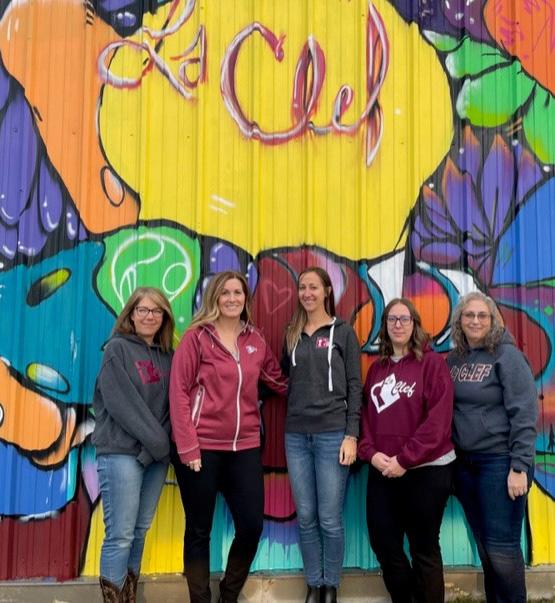
The most popular course is recent, dating back to 2022. It is a workshop designed to facilitate the integration of the labour market, more specifically to do substitute teaching in the schools of the region. According to the team, it is a very popular workshop, with a waiting list for each session.
La CLEF
896-D Riverside Drive, Timmins, ON P4N 3W2 705 267-1421, poste 254 www.cscdgr.education
DIRECTOR
Natalie Poitras natalie.poitras@cscdgr.education
EDUCATOR
Mona Chartrand mona.chartrand@cscdgr.education
COLLÈGE BORÉAL
CENTRE DE PERFECTIONNEMENT DES ADULTES
Collège Boréal has twelve adult learning centres in Ontario. Collège Boréal was created in 1995 to respond to the needs of Francophone communities in Northern Ontario and to facilitate their access to a Francophone college. The Centre d’alphabétisation pour les adultes only began operations in 2002 on the northern Ontario campuses and later in 2004 on the southwestern campuses. The Adult Development Centre provides a Grade 12 equivalency, some courses for college enrolment, and some skills development. Of the twelve centres, seven are located on Collège Boréal campuses, the others are in access centres that also offer services related to immigration and employability. The main clientele at the Sudbury campus is composed mainly of people who come to take the courses they need to continue their post-secondary studies or who come to take the theoretical part of their apprenticeship (for the skilled trades work-based learning programs). Some people also come to take the ACE program, which leads to a certificate that is accepted as Grade 12 equivalent by colleges and apprenticeship offices for admission purposes, and is also increasingly recognized by more and more employers in Ontario.
There is also another type of clientele, that of personalized workshops for certain organizations, for example, French communication workshops for employees of Revenue Canada.
The most popular courses are French courses, customized workshops for businesses and a French coffee shop to practice French. Computer/office automation is also very popular, especially with international students who come to upgrade their skills before starting their post-secondary courses. The Sudbury team is particularly proud of its partnership with the F@D to develop two resources for the Learning component (joint provincial/federal funding).
Collège Boréal – Centre de perfectionnement des adultes –Sudbury Head Office
21 Lasalle Boulevard, Sudbury, ON P3A 6B1 705 560-6673, poste 3140
www.collegeboreal.ca
DIRECTOR OF THE LITERACY CENTRE AT COLLÈGE BORÉAL
Amélie Ouellet amelie.ouellet@collegeboreal.ca
42 cofa members
Photo: La Clef (Catholic School Board of the Grandes Rivières District)
COLLÈGE LA CITÉ ONTARIO BASIC SKILLS (OBS)
La Cité’s Ontario Basic Skills (OBS) program is a program that provides high school education to adults and prepares them for college or the workforce. The OBC program provides upgrading or “prerequisites” for entry into a postsecondary program.
The program offers courses in French, mathematics, biology, chemistry, physics, computers, self-management, and success strategies. These courses allow students to enter college programs or to obtain the ACE certificate, which is recognized by Ontario colleges as equivalent to grade 12 and by many employers. The clientele is made up of students who are preparing for postsecondary studies, most often in health and science. The most popular courses are those related to biology, with many people in entry-level positions in the health field coming to seek tools to return to school and improve their working conditions. These are mostly evening courses. Recently, the program team was very pleased with the success of a free Personal Support Worker course, which focuses on the care of people with various illnesses in institutions or at home.

Collège La Cité - Ontario Basic Skills
801 Aviation Parkway, Ottawa ON K1K 4R3
613-742-2483, poste 2769
fbo@collegelacite.ca
www.collegelacite.ca/programmes/fbo.htm
MANAGER OF INCLUSIVE EDUCATION PROGRAMS
Amélie Gagnon amegagno@lacitec.on.ca
Contact-Alpha Magazine Becomes Perfectio
In the editorial for the first Perfectio, published in winter 2018, editor Rachel Anne Normand writes, “More and more, I hear my counterparts tossing around the idea that the word literacy is outdated, that learners are coming for much more than learning to read and write. Today, we talk about literacy, numeracy, digital literacy and essential and generic skills rather than literacy. Since the title of a magazine is a prism through which each stakeholder perceives the content and scope of the magazine, I began to reflect on the words, “Contact-Alpha”. Do these words still have the same meaning? Do they reflect the progression of the network’s thinking and changing needs? When I approached COFA’s Executive Director with my thoughts, I could tell that he shared the same conclusion as I did. In order to evolve with our network, Contact-Alpha had to evolve as well. We are therefore proud to present the very first edition, the special edition, of the newly titled magazine: Perfectio. Going back to the etymological root of the word “perfection”, we find perfectio, a term that perfectly encompasses the mission of our network and the vision of this magazine, your reference in adult education.
43 les membres de la cofa
A SLICE OF HISTORY: 2018
More and more, I hear my counterparts tossing around the idea that the word literacy is outdated, that learners are coming for much more than learning to read and write. Today, we talk about literacy, numeracy, digital literacy and essential and generic skills rather than literacy.
Photo: Collège Boréal
THE COFA TEAM REVEALS
GABRIELLE LOPEZ Executive Director
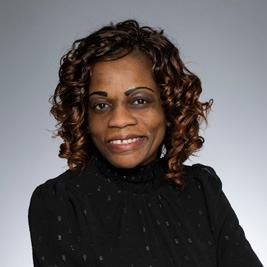
Gabrielle has been working at the COFA since 2018. Prior to that, she worked in a multitude of fields: artistic, cultural, event management, project management. She was the interim director of RESDAC, and then naturally came to the COFA as one of its members. After a year, she took over the reins of the COFA, in June 2019. What she loves most about her job is the development of the team and the network.
NATHALIE BRUNET-DESCHAMPS Finance and Operations Assistant
Nathalie will celebrate her 20th year with the COFA this year! In twenty years, she has accumulated a wealth of expertise and organizational memory, which she is willing to share when the need arises. As of September 2022, she has taken on a new role as Finance and Operations Assistant, a position in which she believes she can “still grow, learn and make a difference”. Prior to that, she worked at La Cité collégiale for over 10 years, and at an organization in Prescott-Russell that provides specialized services to people with intellectual disabilities. At the COFA, she knows that she can offer her expertise in many files, her dynamism and her driving force. What she enjoys most about her work is the numbers! And more modestly, managing invoices and payments.
MICHEL ROBILLARD PCFAD Project Coordinator
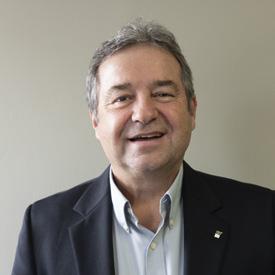
Michel Robillard has been working at the COFA since 2012. Prior to that, he was the Director of Learning Strategies at National Defence, so he was aware of the issues surrounding basic skills acquisition. What he enjoys most about his work is knowing that he is making a real difference in the lives of all the learners who use the services of the F@D.
CÉLINE ROMANIN Project Manager
Céline has been working at the COFA since 2020. Prior to that, she held various positions in the Canadian Francophonie, with expertise in the development of Francophone communities in minority settings and in project management. At the COFA, she believes she brings her ability to juggle the coordination and management of several files simultaneously. What she enjoys most about her work is following concrete projects that have an impact on the ground. She also enjoys collaborating, creating links or dynamic partnerships within the team or with external partners.
SYLVIE GAUTHIER Program Manager

Sylvie has been working at the COFA since January 2013. She started as an educator in the F@D Program, and then as a lead educator a few years later. With all her years of experience as an educator she believes she brings her expertise to the COFA: face-to-face and online training: “I have a very good understanding of both delivery methods and their challenges”, she explains. What she enjoys most about her job is the lack of routine and the teamwork, which she particularly appreciates: “I have a great team around me, which makes my job much easier”.
LYDIENNE GUIDOIN Lead Educator
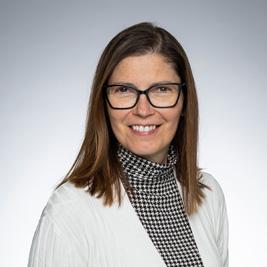

Lydienne has been working at the COFA since 2018. Prior to that, she was a senior educator at the Key Adult Education Service Centre, and taught French as a Second Language courses for the Training Service’s external programs. At the COFA, she believes she brings her skills in priority management, organization, team management, project management, and her extensive experience working with learners with little formal education. What she likes most about the COFA is the atmosphere and the fact that there are always new projects that allow her to use her different skills or to develop new ones.
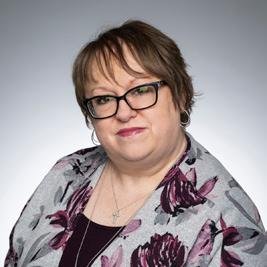
YASSINE BENGHAZI Finance and Operations Manager
Yassine has been working at the COFA since 2021. Before that, he worked in finance in the banking sector and in higher education. He also taught business management technology solutions in the French college environment. At the COFA, he believes he has brought his multidisciplinary experience and knowledge of finance, information technology and teaching. In his current position, he has adapted quickly, ensuring a smooth transition. What he enjoys most about his job is the team! All members collaborate and support each other to achieve the COFA’s goals. Everyone participates and contributes to projects by bringing their strong skills to the table.

FATOU SALL Registration Clerk
Fatou has been working at the COFA since 2022. At the COFA, she believes she brings her ability to adapt and work under pressure. What she enjoys most about her job is her interactions with clients.

REVEALS ITSELF...
YASSMINE KHAYAT Administrative Assistant

Yassmine has been working at the COFA since 2018. Prior to joining the COFA team, she worked as an assistant to the CEO of a Telecommunications company in her home country of Lebanon. At the COFA, she believes that one of her most important contributions is her dedication to getting the job done. What she likes most about her job is the environment.

MARIE-EVE SÉGUIN Communications Coordinator
Marie-Eve has been working at the COFA since 2018. Prior to working at the COFA, she has worked in a printing house, launched her own photography studio and worked for a marketing firm. Marie-Eve knows how to bring the team together, and has a very creative mind. What she appreciates the most at work is the variety: “Every day is different!”.
CHANTAL CARRIÈRE Interim Communications Coordinator
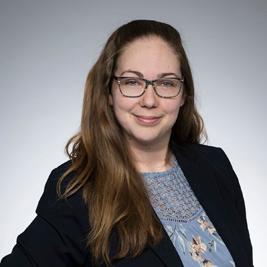
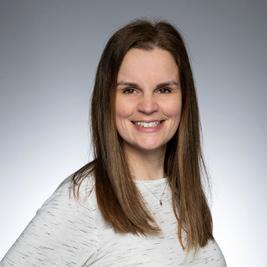
Chantal has been working at the COFA since 2022. Prior to working at the COFA, she worked primarily as a graphic designer. As an illustrator, she taught art classes and illustrated a children’s book. At the COFA, she believes that her ability to wear many hats on her head, and to adapt, contributes 100% to the success of the projects she is involved in. What she enjoys most about her job is the variety of tasks and daily challenges that force her to find creative solutions: “There is never a dull moment here!”
BÉNITA-CARMÈNE KINGABIYE Data Entry Clerk
Bénita-Carmène has been working at the COFA since 2019. Prior to her arrival, she was doing a work placement in an NGO in her home country of Burundi as a financial assistant. At the COFA, she believes she is helping to improve service to a diverse client base. What she enjoys most about her work is managing the files of learners on a daily basis.
GUY LEVESQUE Project Coordinator

Guy has been with the COFA since 2017. Prior to that, he held various jobs in the Ontario government, in post-secondary education and training. In 2017, this is when the FONCE.CA project was born, from his vision for service coordination.
YASSINE MALLAH IT Infrastructure Support Analyst and Technician

Yassine has been working at the COFA since 2022. Prior to joining the COFA team, he worked as a Web developer, System administrator, Network and customer support, for small and large companies, as well as for the government. At the COFA, he believes he brings a versatility that allows him to adapt to any project at hand and be able to help when his skills are needed. What he likes most about his job is the human aspect, so he’s happy to be part of “a dynamic team with a great atmosphere”.
NANCY RIVARD Educator
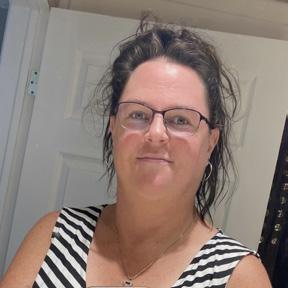
Nancy has been with the COFA since 2022. Prior to that, she worked in the LBS field for over 10 years. What she enjoys most about her job, she says, is seeing learners succeed in their training: “It’s so rewarding to be able to help improve people’s skills and knowledge; we have the power to change lives!” At the COFA, she believes that she brings her expertise as a face-to-face trainer, acquired in a small centre in Northern Ontario, which has allowed her to understand the realities of many training centres in the province. She is able to provide empathetic follow-up during her remote learning courses and thus contribute to the success of her learners.
FRANCESCA RODELLA Educator
Francesca has been working at the COFA since 2022. Prior to joining the COFA team, she worked as a French and Italian as a Second Language teacher in an elementary school, and in the continuing education department of a college. What she enjoys most about her job is learning and passing on knowledge. At the COFA, she believes that she brings her rigor and attention to detail, with a touch of creativity.
DHOUHA BAKLOUTI Educator

Dhouha has been working at the COFA since 2021. Prior to that, she worked as a teacher at La Cité collégiale in marketing. In 1998, she worked on the conversion of a university marketing program into quantitative methods applied to statistics and mathematics, a program she followed until her doctoral thesis. At the COFA, she believes that she contributes to the good atmosphere with her temperament and her involvement with her colleagues.
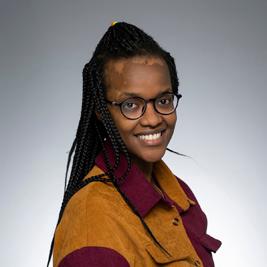
45
WE WILL SUCCEED!
Acknowledgements
A special thank you to those who have agreed to answer our questions, either by visiting our offices or by videoconference:
MONA AUDET
Executive Director of Pluri-Elles (Manitoba) Inc. and Chair of the RESDAC Board of Directors;
DANIEL BARIL
Executive Director of the Institut de coopération pour l’éducation des adultes (ICÉA) and Chair of the Board of Directors of the UNESCO Institute for Lifelong Learning (UIL);
SUZANNE BENOIT
former Executive Director of COFA;
DENIS DESGAGNÉ
Executive Director of the Réseau pour le développement de l’alphabétisme et des compétences (RESDAC);
PETER HOMINUK
Executive Director of the Assemblée de la Francophonie de l’Ontario (AFO);
LOUISE LALONDE
young retiree, former director of the “Moi j’apprends” centre in Ottawa;
MICHEL ROBILLARD
former Executive Director of COFA and current Project Coordinator of the Canadian Distance Education Platform (CDEP);
RENAUD SAINT-CYR
Executive Director of Alpha-Toronto and Chair of the COFA Board of Directors.
Without their testimonials and comments, it would not have been possible to write this issue.
Special thanks also to Alan Cherwinski, Executive Director, and Guylaine Vinet, Organizational Development Specialist - Education and Technology, our partners from AlphaPlus, who took the time to write a special feature for this occasion.
Thank you to the Ministry of Labour, Immigration, Training and Skills Development for its continued support and to the governments of Canada and Quebec who contribute to the funding of many of our projects. Thank you also to all our partners who help us reach out to adults with low literacy skills, expand our service offering and provide complementary services to support learning.
And finally, an emotional thank you to the learners for their courage and willingness to overcome their barriers to learning.
TOGETHER
A WORD from Centre FORA
In October of 1991, the COFA settled in Ottawa, with Suzanne Benoit leading this new organization. Many of us remember her well!
As Interim Director, then Executive Director, Suzanne, shouldered by an outstanding team, spent countless hours setting up this organization. Together, these dedicated and committed team members invested considerable energy in supporting adult training.

From the outset, the COFA always ensured that adult learners remained at the core of its vision and mission. Likewise, this organization has been persistently committed to providing crucial support to Francophone trainers across the province. Its connections with each Francophone training centre in Ontario are of great value, the reputation and credibility of the COFA team being second to none.
Since its inception, the COFA has achieved multiple projects. Over the years, the Coalition has evolved exponentially. It was able to adapt to clients’ needs, as well as technological changes and labour market transformations. Moreover, it remained flexible, always mindful of new trends and most importantly, of its members’ wishes. Quite a challenge! Quite an accomplishment!
In our opinion, the COFA is an unavoidable and essential partner within the Francophone network. Indeed, the Centre FORA has often collaborated with the organization in creating andragogical resources. This wonderful complicity between the COFA and the Centre FORA is undoubtedly envied by many. Together, both our organizations ensure the presence of a meaningful Francophone voice at Ontario’s LBS table and with our funders. In short, the friendship shared by our two support organizations guarantees that LBS training centres, trainers and learners receive unfailing support.
Dear COFA, please accept our most sincere congratulations on your 25th anniversary! May you continue your great work for many years to come!
Long live the Coalition ontarienne de formation des adultes!
Jacqueline Gauthier Executive Director
Yolande Clément Founding Executive Director
Centre franco-ontarien de ressources en alphabétisation (Centre FORA)
50 The History of COFA through its Directions
Its connections with each Francophone training centre in Ontario are of great value, the reputation and credibility of the COFA team being second to none.
Jacqueline Gauthier, executive director of Centre FORA, giving a toast during the 25th anniversary Gala in May 2023.
ERRATUM: Please note that an error has occurred in the publication of this edition of Perfectio. This message from Centre FORA was inadvertently omitted from the publication. You’ll find it as an insert in the print edition, and it has also been added to the digital edition of this issue, which you’ll find on our website at www.coaliton.ca/perfectio/. Our apologies to Centre FORA.
PHOTO: CLAUDE BRAZEAU








 Gabrielle Lopez
Gabrielle Lopez















































